If you’ve ever played Japanese-language or Japanese-made video games, you’ve probably noticed that Japanese video game credits are usually written in English. And, as we’ve seen in previous articles, the unpredictable mixture of Japanese and English sometimes leads to surprising – and amusing – results.
Many of these Japanese credits quirks aren’t well known, so I thought I’d share some common patterns I see all the time and explain why they happen.
Why English?
There are a number of reasons why Japanese game credits are usually written in English. It’s a longstanding tradition that’s been around since the very first Japanese video games, for example, and using English this way also lends Japanese credits a solid, professional feeling.
Here are some examples of English in Japanese credits from a variety of companies and systems across several decades:
This heavy reliance on English writing is another example of why you don’t need to translate everything when localizing a game into Japanese.
Of course, this isn’t to say that all Japanese game credits are written in English, though. English is more common, but Japanese does get used:
Notable Patterns in Japanese Credits
Whenever I play a Japanese video game, I always look forward to seeing the credits and trying to spot the following patterns. Try looking for these the next time you play a game made in Japan!
Programer
It’s extremely common to see “programmer” written as “programer” in Japanese games. It’s an understandable mistake, but it’s one that everyone seems to make, whether they’re a zero-budget hobby programmer, a mid-tier development studio, or even a billion-dollar company.
This “programer” phenomenon is less common these days now that game companies are more internationally minded, but the next time you play a Japanese-made game, keep an eye out. You just might spot a “programer”!
Stuff
Naturally, the word “staff” appears a lot in video game credits. But the letters A and U are notoriously problematic when switching between Japanese and English, so it’s common to see Japanese video games say “stuff” instead:
Produce
The word “produce”, as in “to produce something” entered the Japanese language at some point, but its usage changed ever so slightly. As a result, it’s common to see “produce” in Japanese credits when you’d normally expect “produced by” or “producer”:
Hard and Soft
The Japanese language also absorbed the English words “hardware” and “software”, but they’re kind of clunky in Japanese. In English, they’re two syllables each, but in Japanese, they become five Japanese-style syllables each: ハードウェア (hādowea) and ソフトウェア (sofutowea). So most people just use the shorter words “hard” and “soft” instead.
As a result, it’s common to see Japanese games talk about “hard” and “soft”:
Congraturation
Another common sight in Japanese game credits is the word “congratulations”, but misspelled in some way:
”Congratulations” is an understandably easy word for anyone to misspell – I even remember a native English-speaking classmate spelling it “congradulations” and insisting it was correct. But this “messed-up congratulations” phenomenon is so widespread in Japanese games that I felt it deserved a mention here. It happens so often it probably deserves its own dedicated gallery someday.
Other Surprises
As we’ve seen, Japanese game credits are kind of unpredictable, so there are always new linguistic surprises in store. Here are some examples:
Unusual Special Thanks
”Special thanks” sections are a common sight in video game staff rolls, regardless of the country of origin. But I’ve noticed that Japanese game developers sometimes used these “special thanks” sections to share behind-the-scenes messages or even to gripe about other development team members.
Funny Staff Names
In the early days, Japanese game companies were always concerned that rival companies might try to steal their top talent. So it was pretty common for developers to go by pseudonyms or nicknames in their games’ credits. This phenomenon led to some unique names that remain memorable around the world, even decades later.
The Send-Off
Lastly, we have one of my favorite things to look forward to in Japanese credits: the final “send-off” message. Usually you’d expect something like “Thanks for playing!”, but Japanese games tend to use amusing variations or unusual English grammar.
Some phrases like “thank you for your playing” and “see you next” even appear with regularity. And sometimes the send-off is perfectly correct English, but just seems out of place in the context it’s being used.
Summary
Japanese game credits are always something I look forward to, because I never know what to expect. Sometimes the credits will be written in Japanese, sometimes they’ll be written in English, and sometimes they’ll be in a unique mixture of both languages.
As we’ve seen in previous articles, mixing Japanese and English can lead to unpredictable results, so whenever English is used in Japanese credits, there’s no telling what unique surprises are in store. It’s an aspect of Japanese games that I just really enjoy for some reason.
Anyway, hopefully this was a fun and enlightening look at a topic that gamers don’t normally consider. If you happen to discover any good “programer” examples, funny pseudonyms, or other interesting Japanese credits, let me know – I might add them to the site sometime!
Many thanks go to VGMuseum for many of the screenshots in this article - it's such a great resource that I can't recommend it enough. Also, if you enjoyed this article, I think you'd like my article about English filler text in Japanese entertainment too. Check it out!





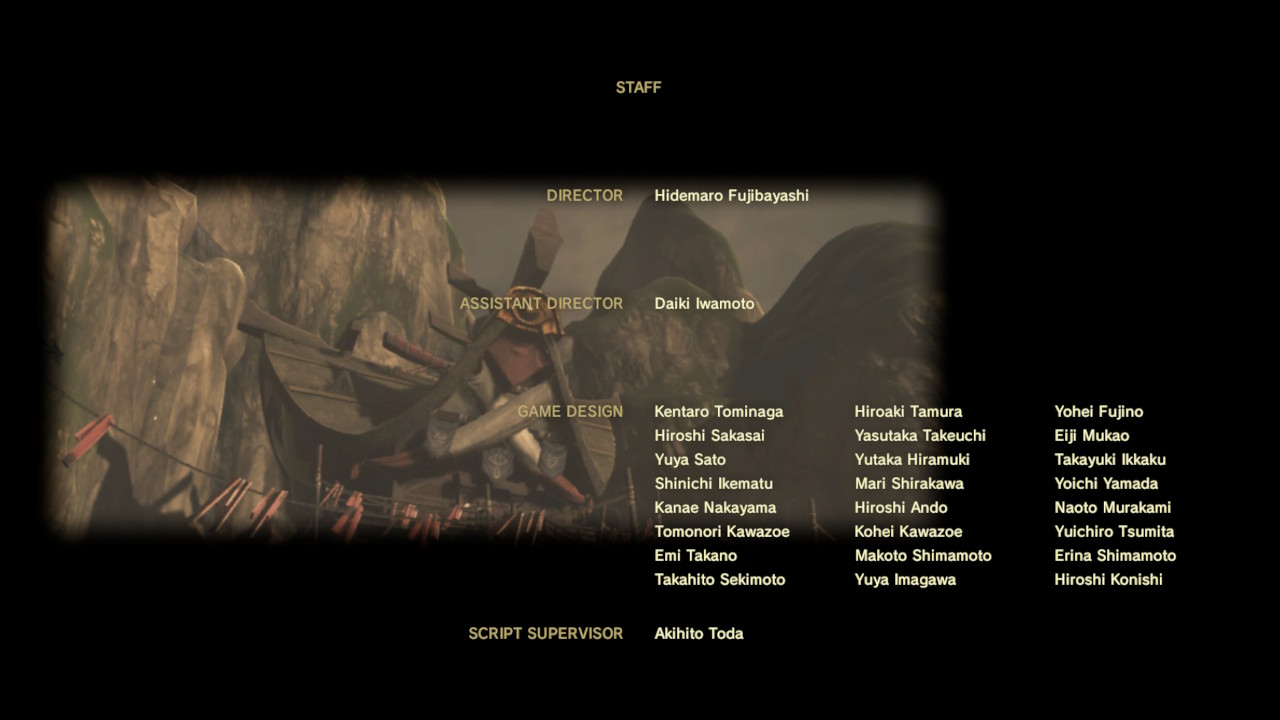
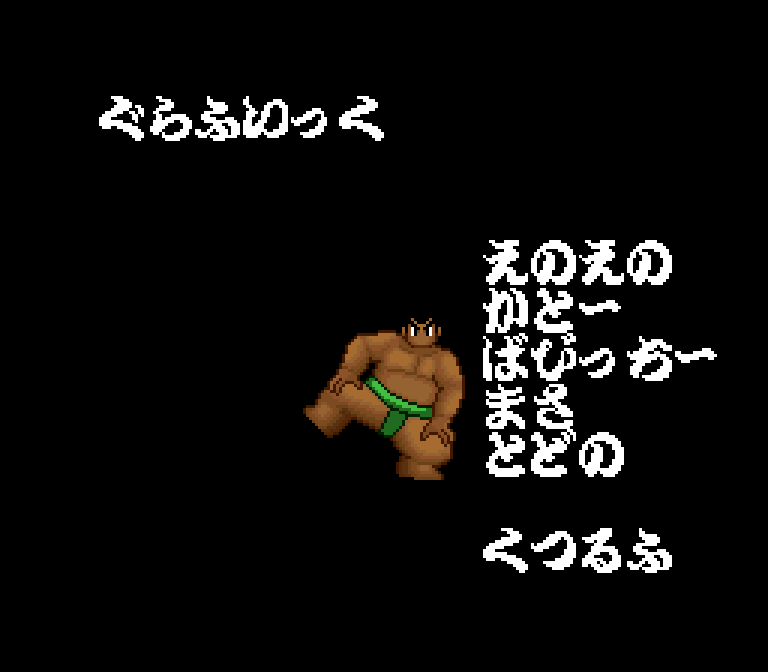
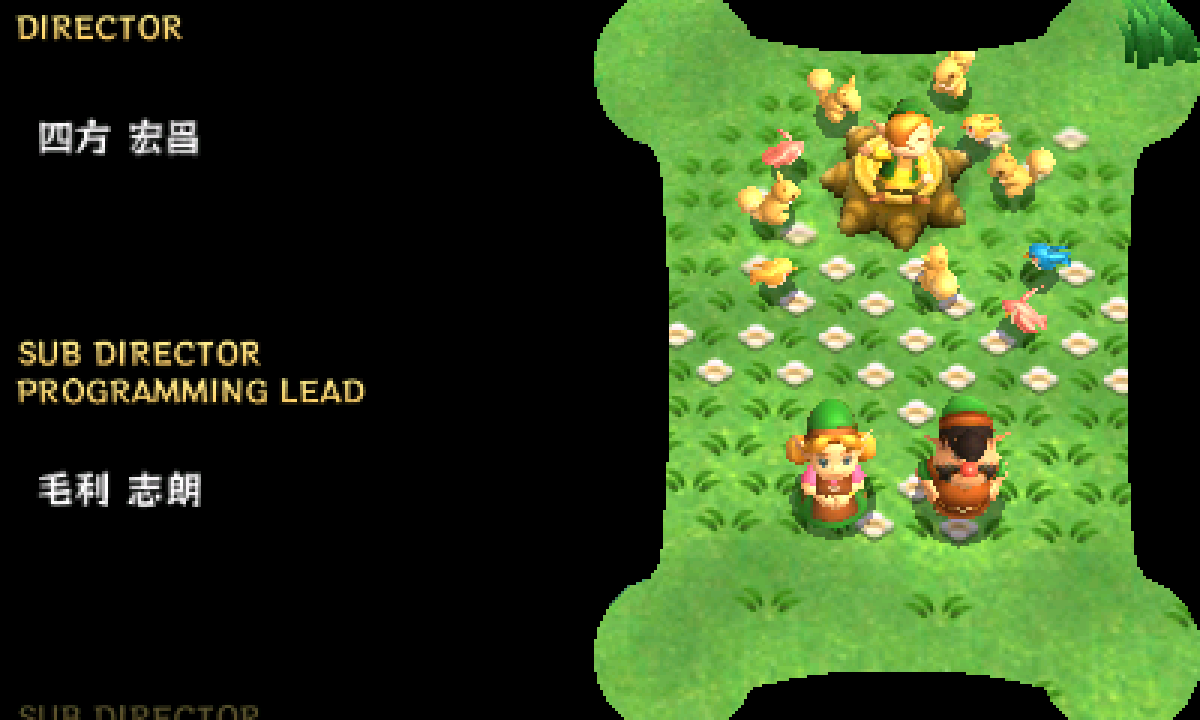
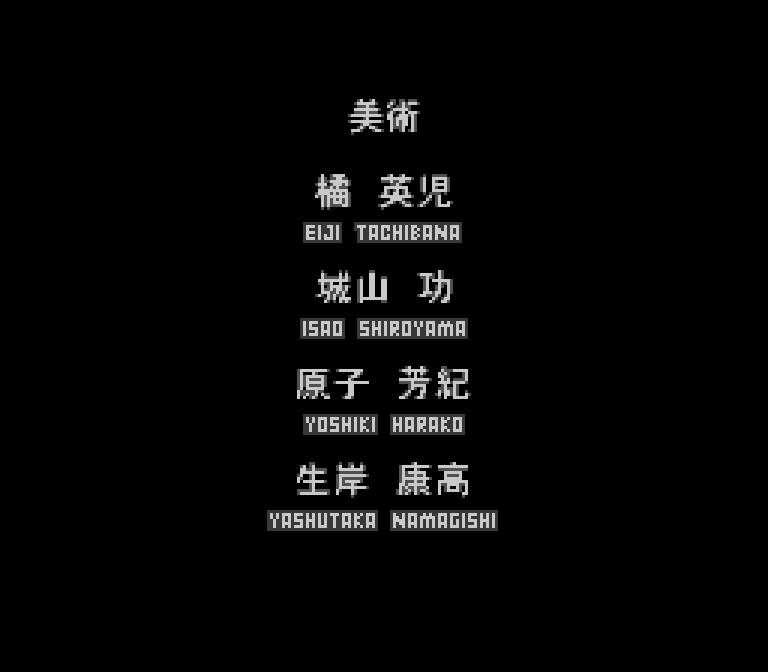
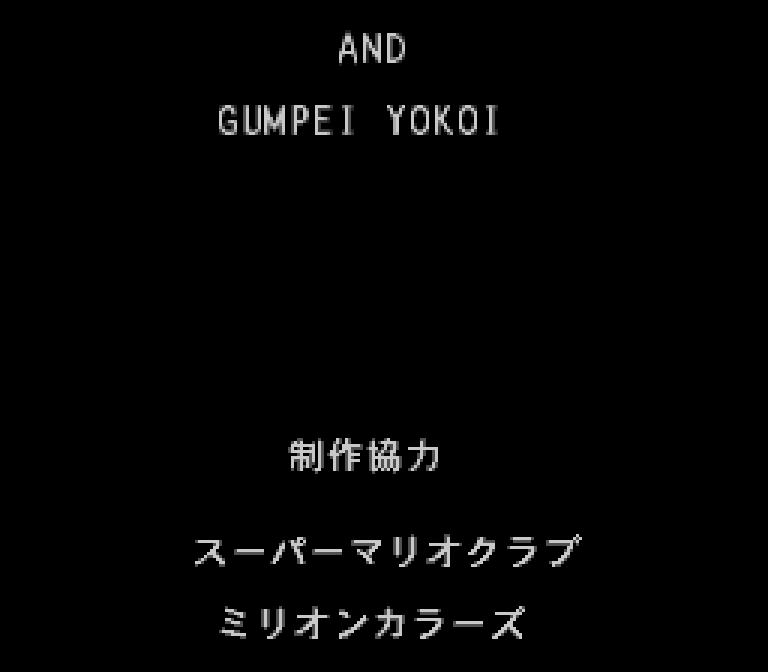
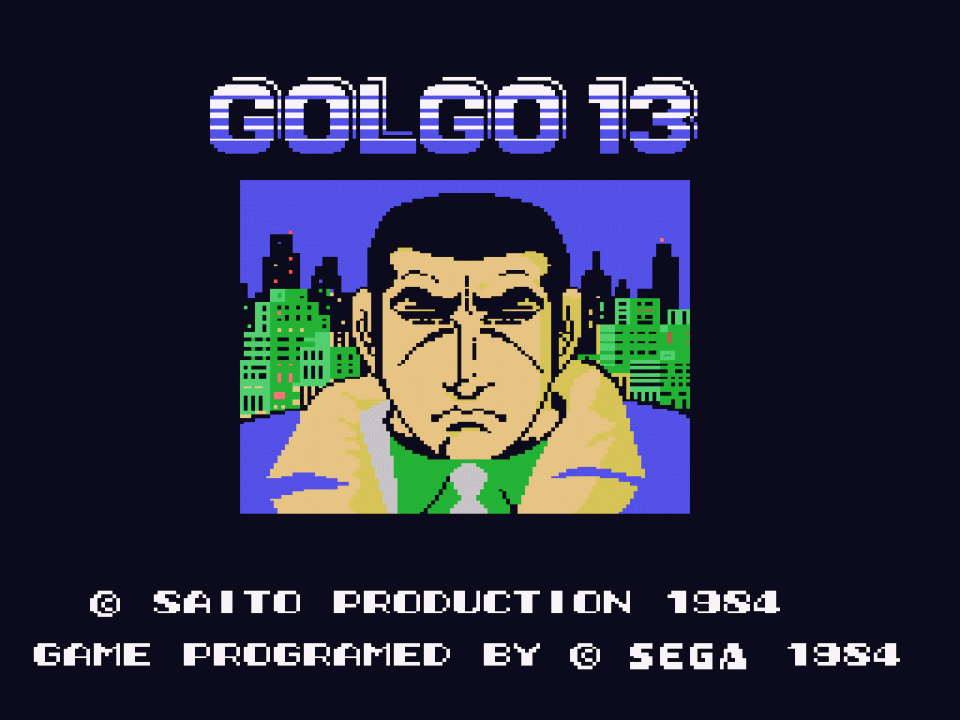
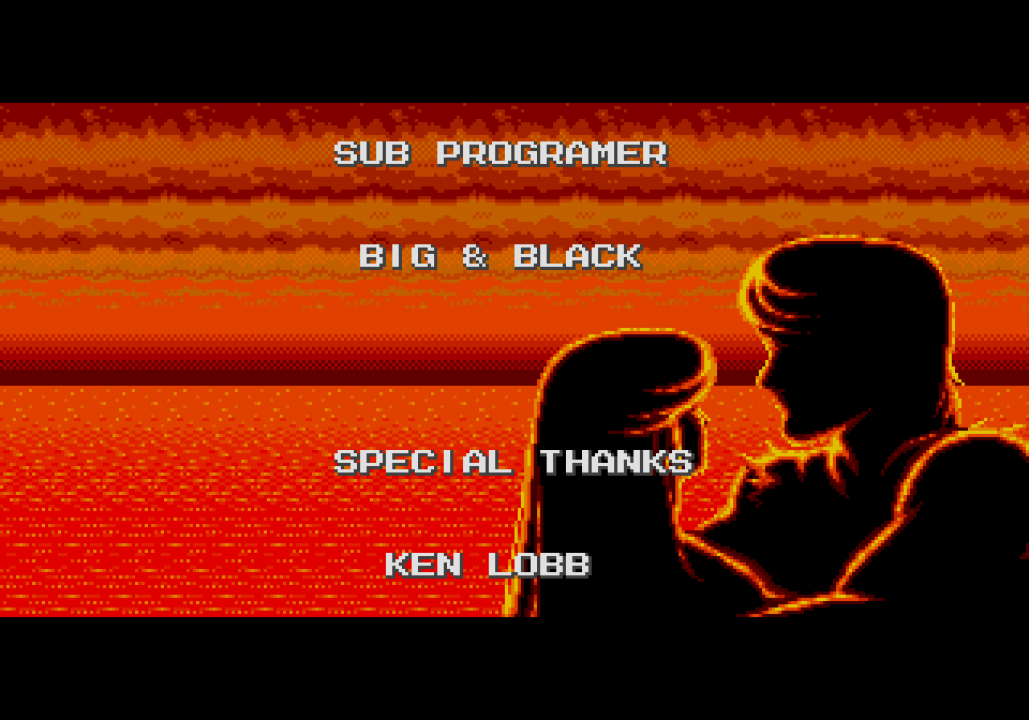
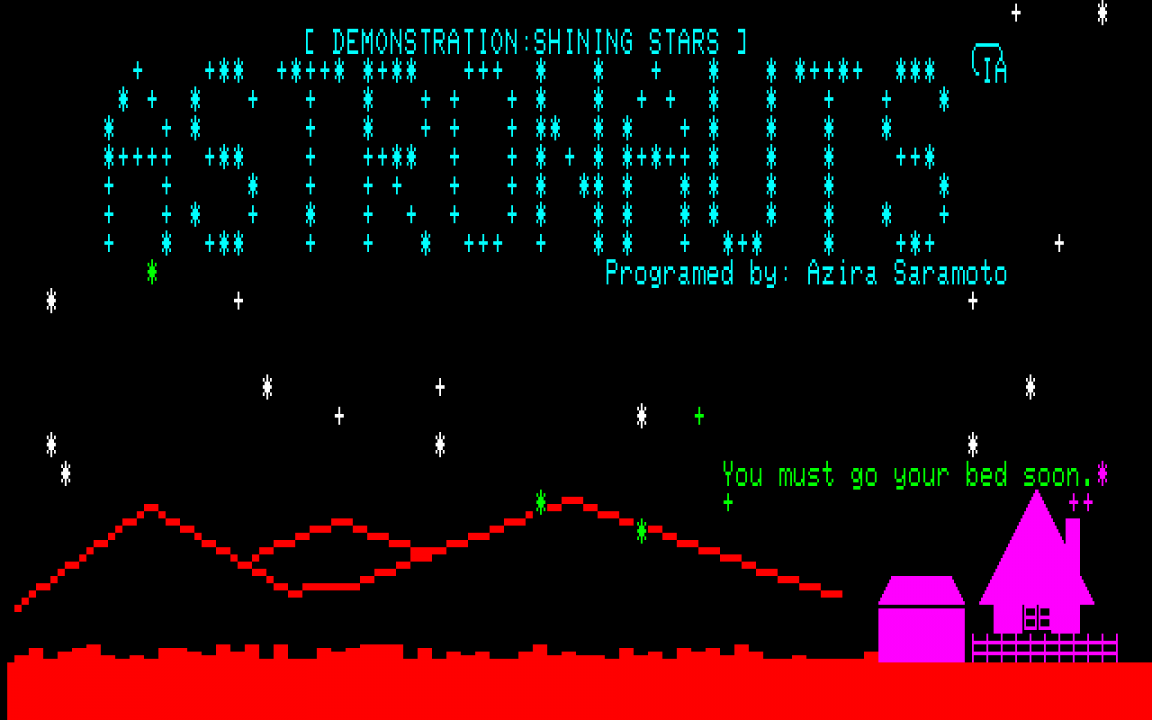
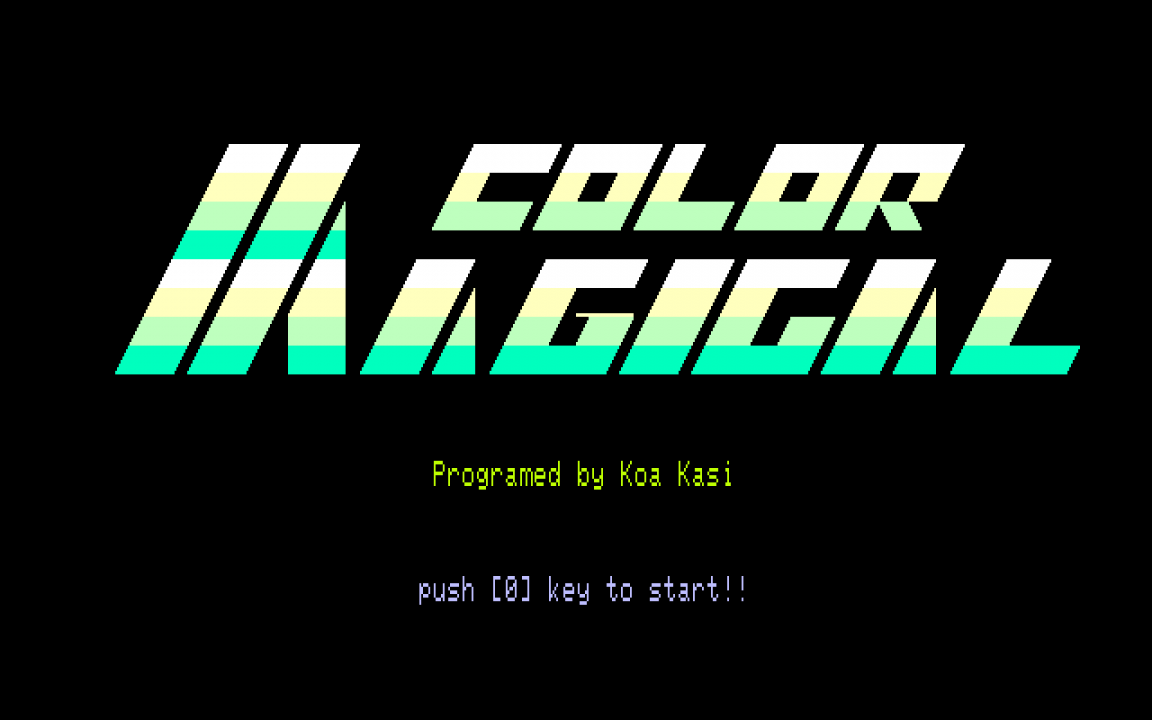
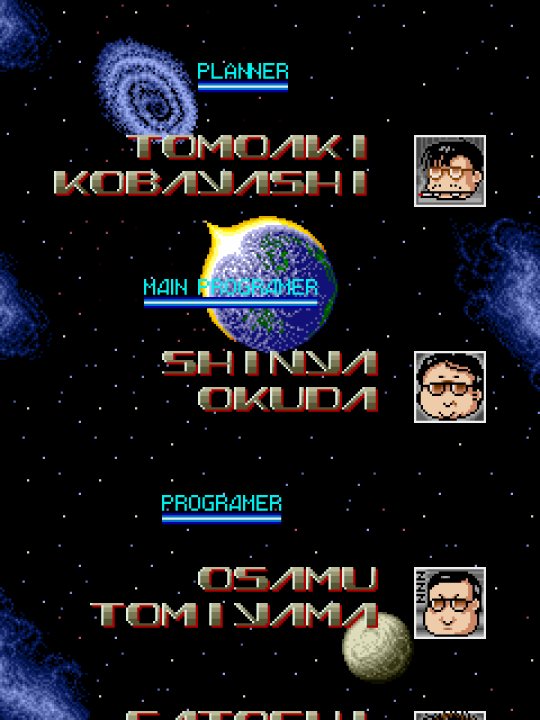
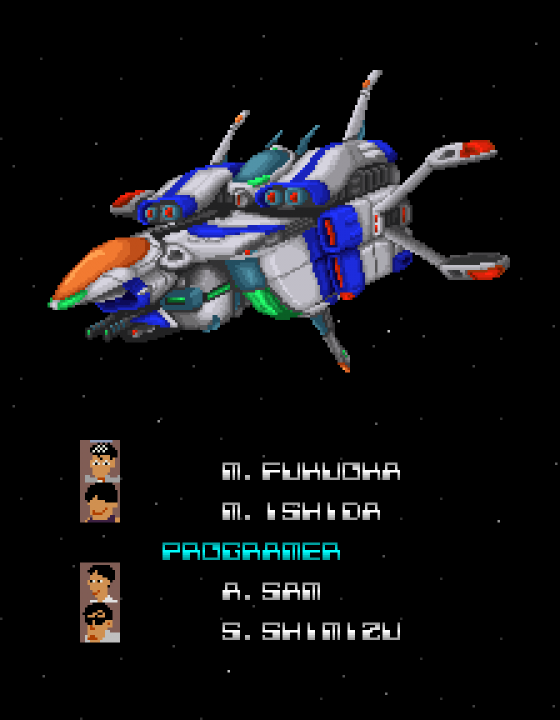
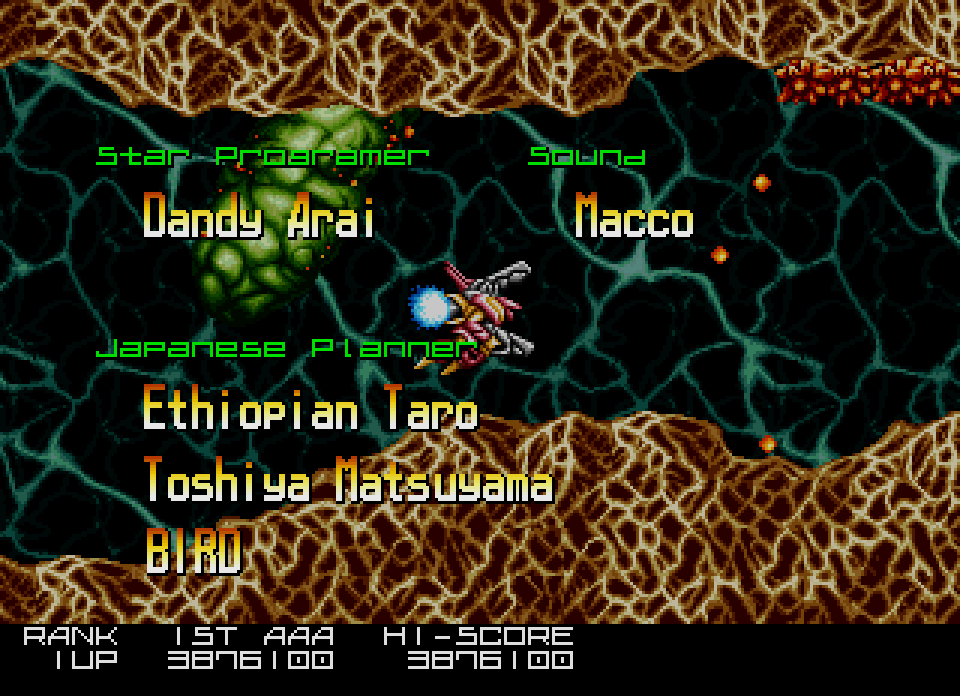
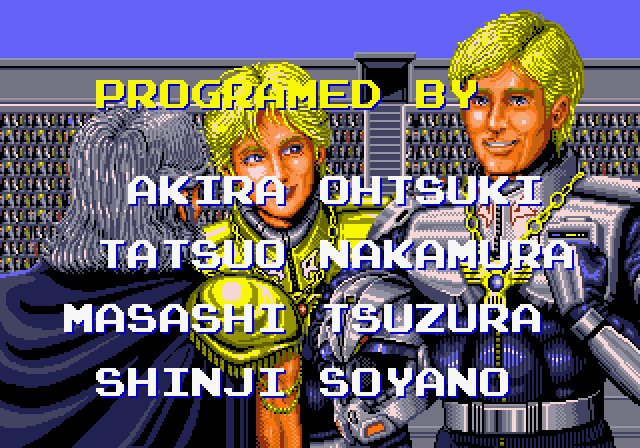
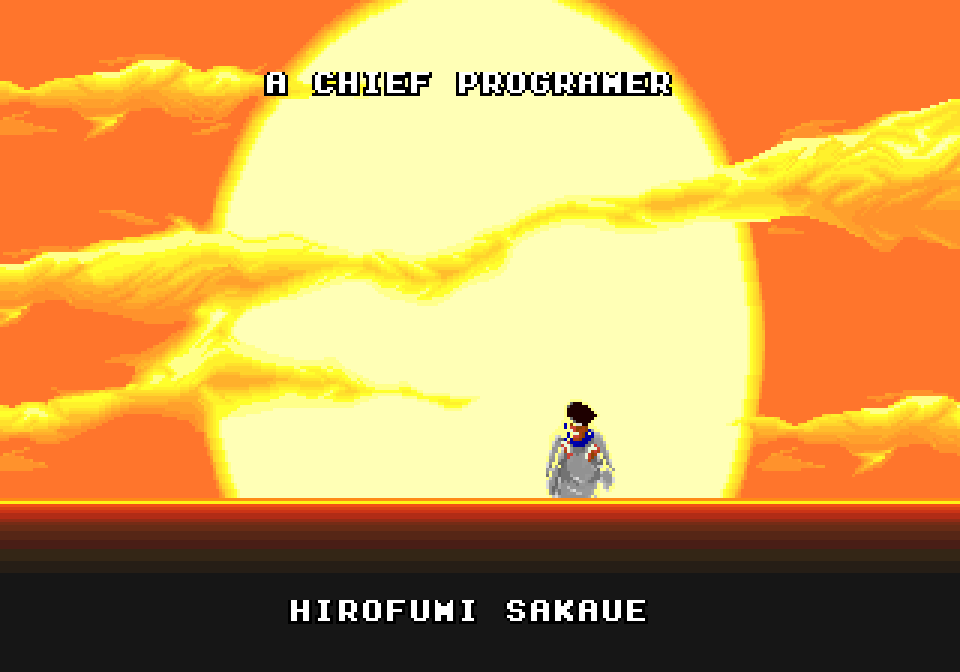
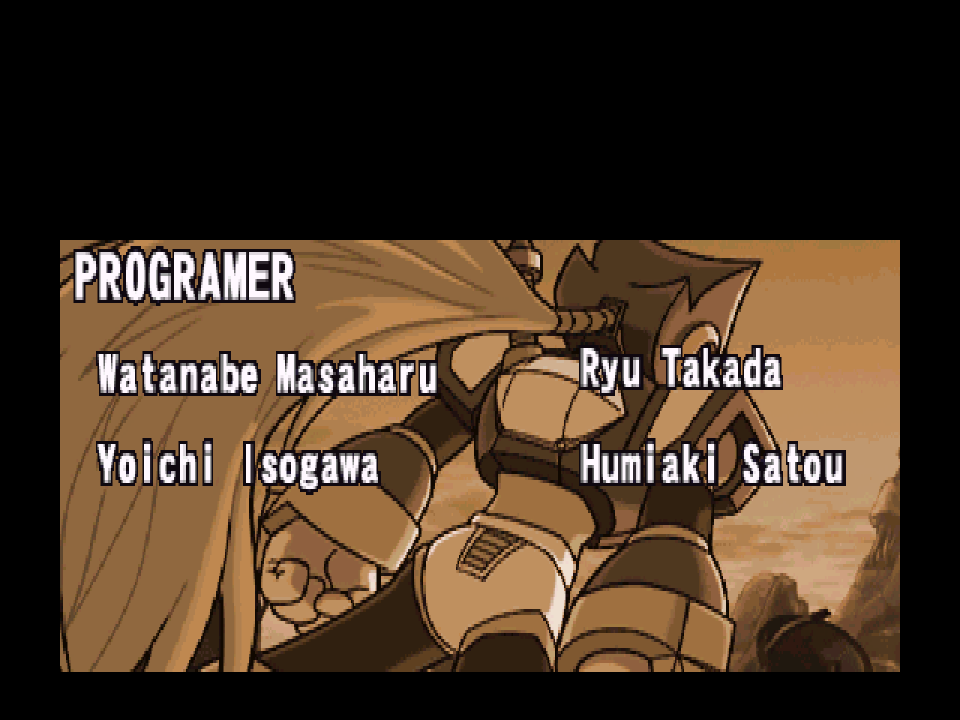
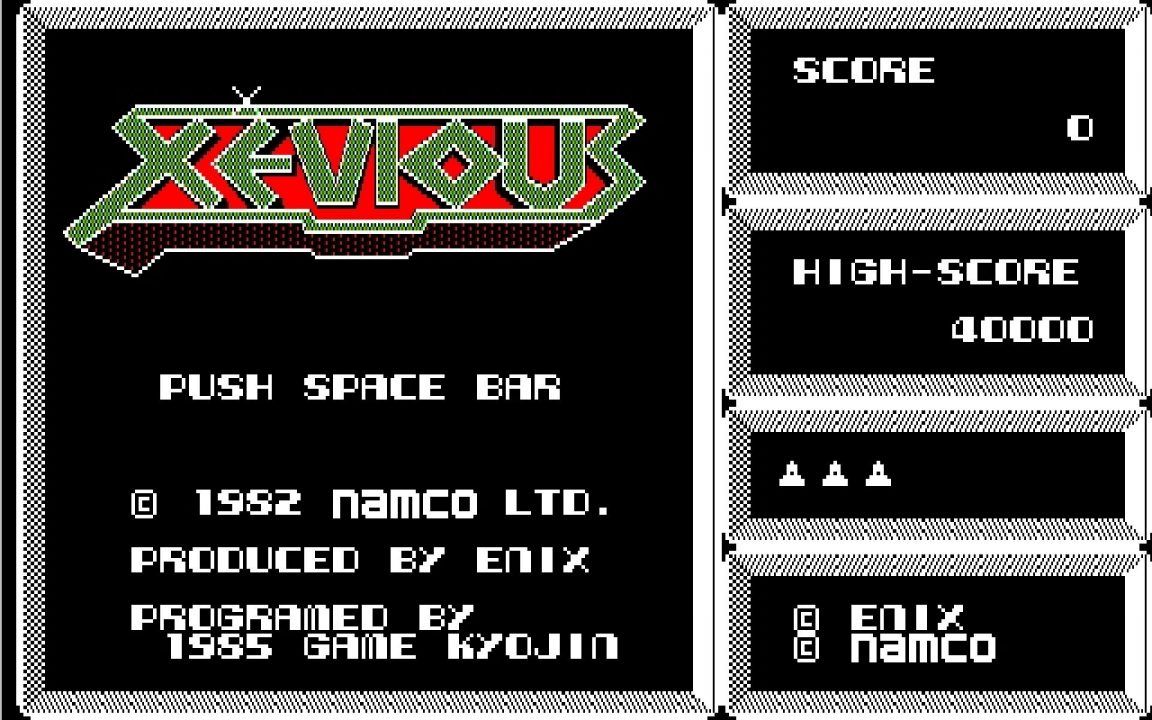
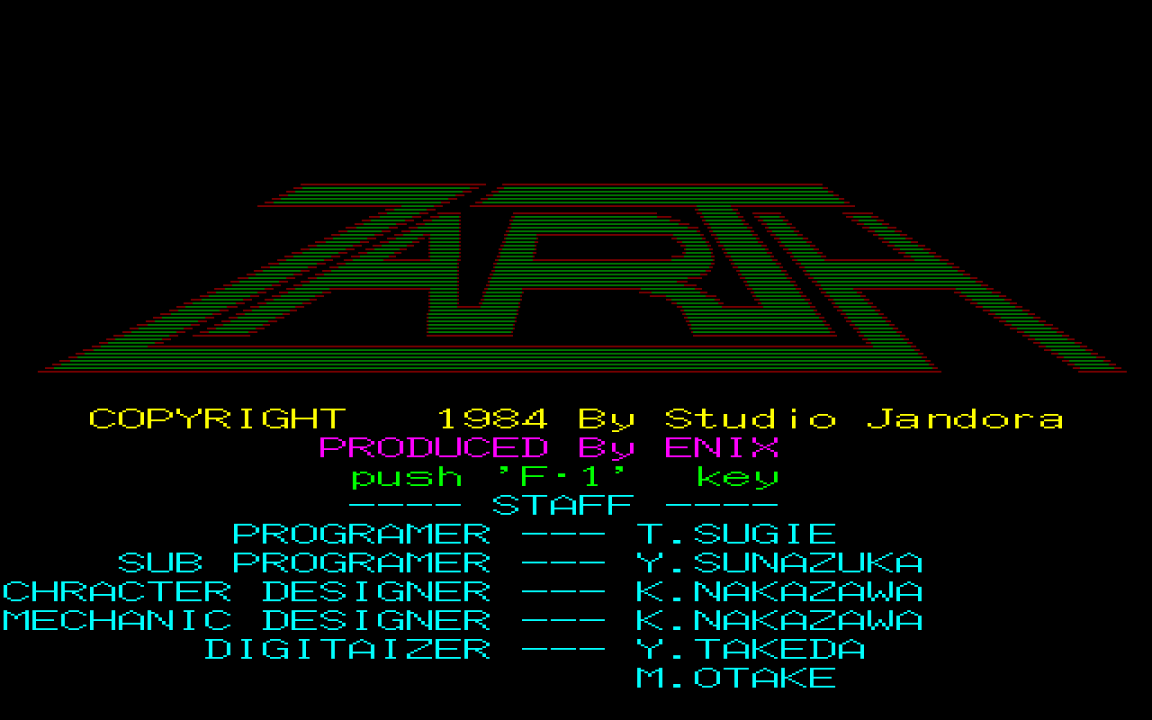
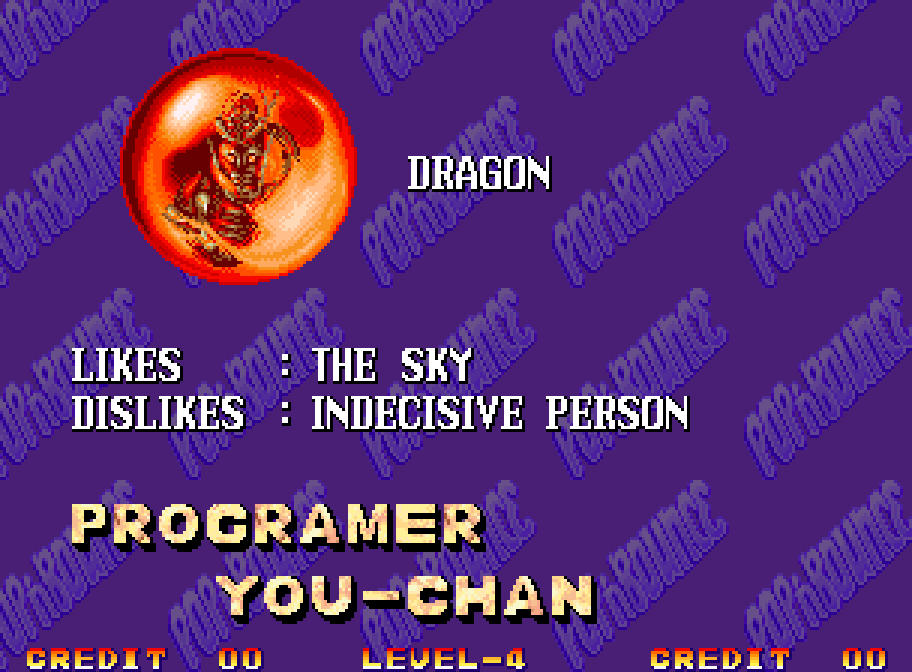
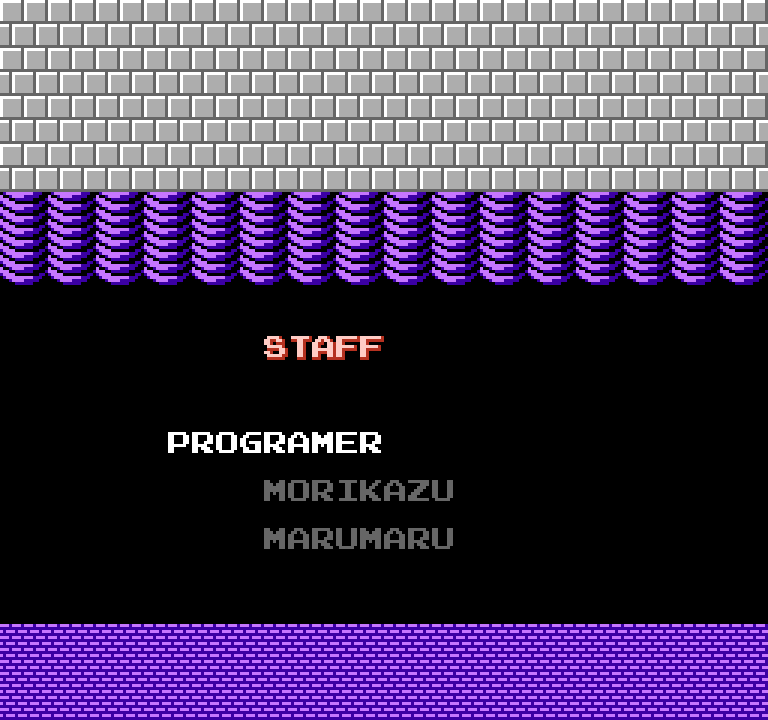
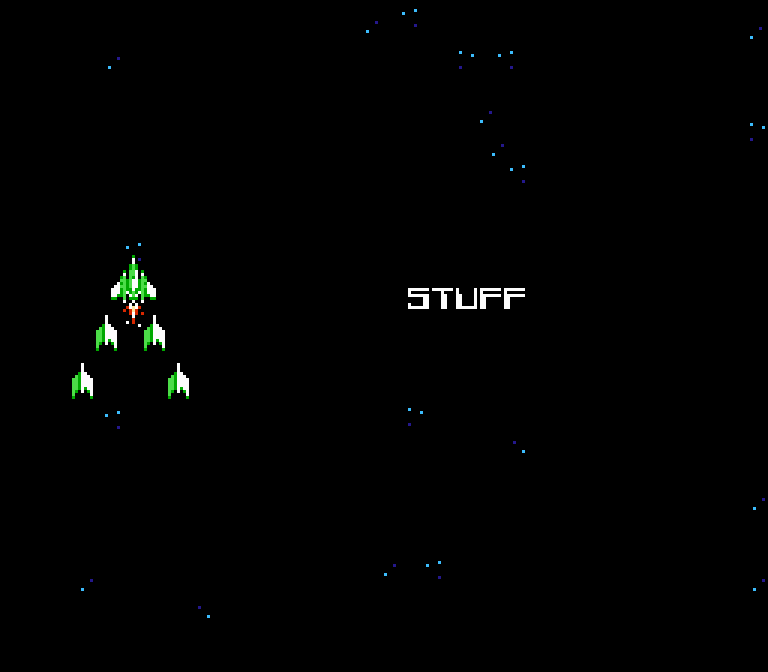
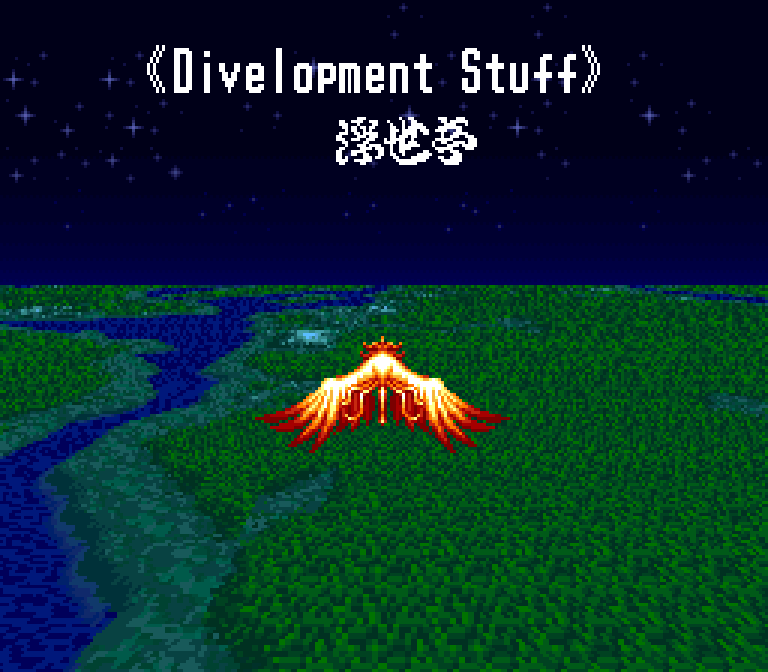
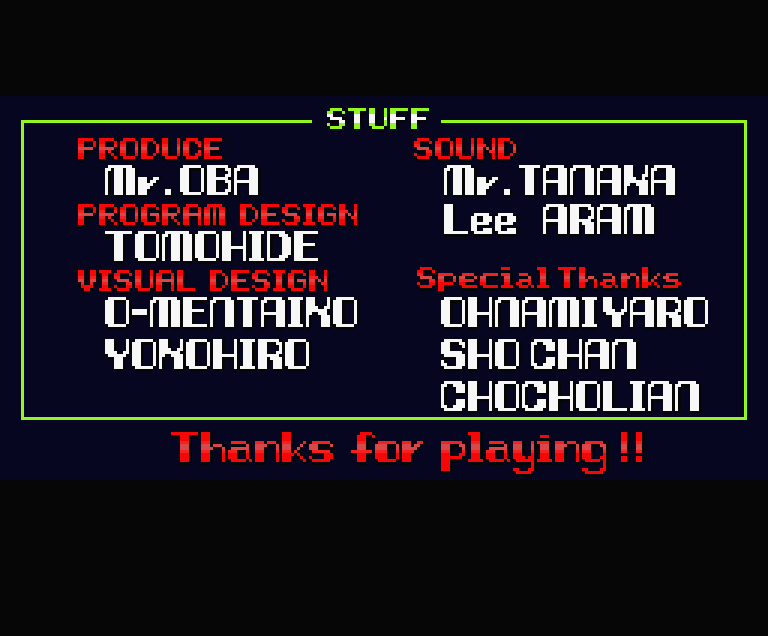
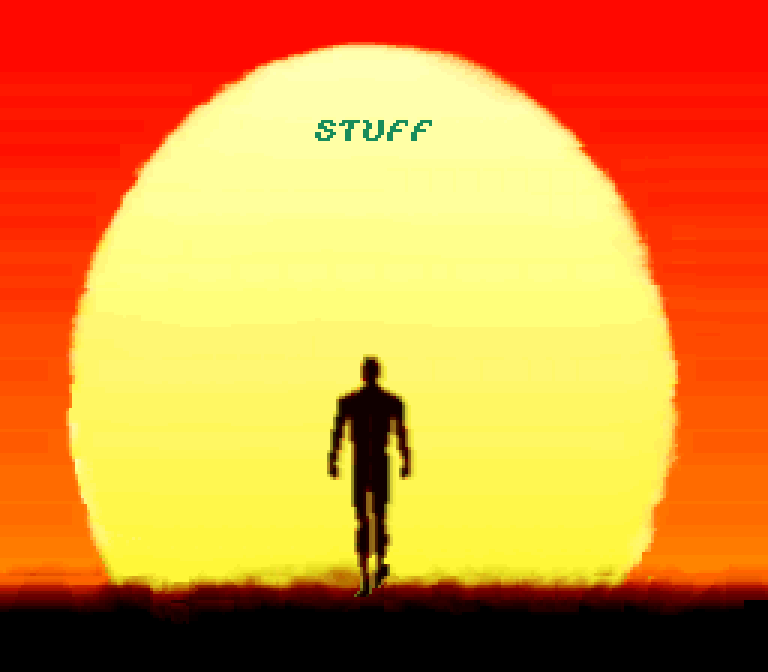
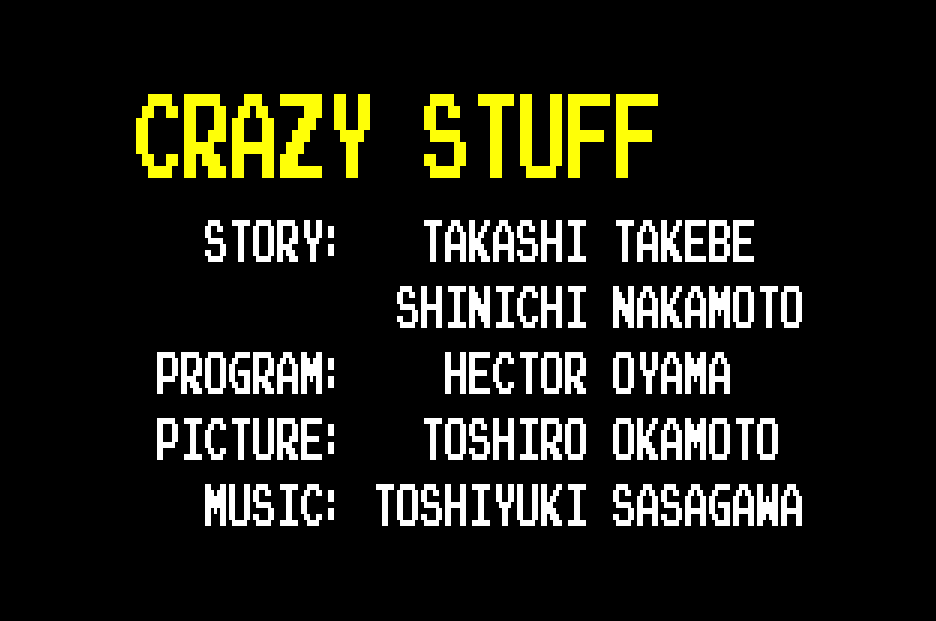

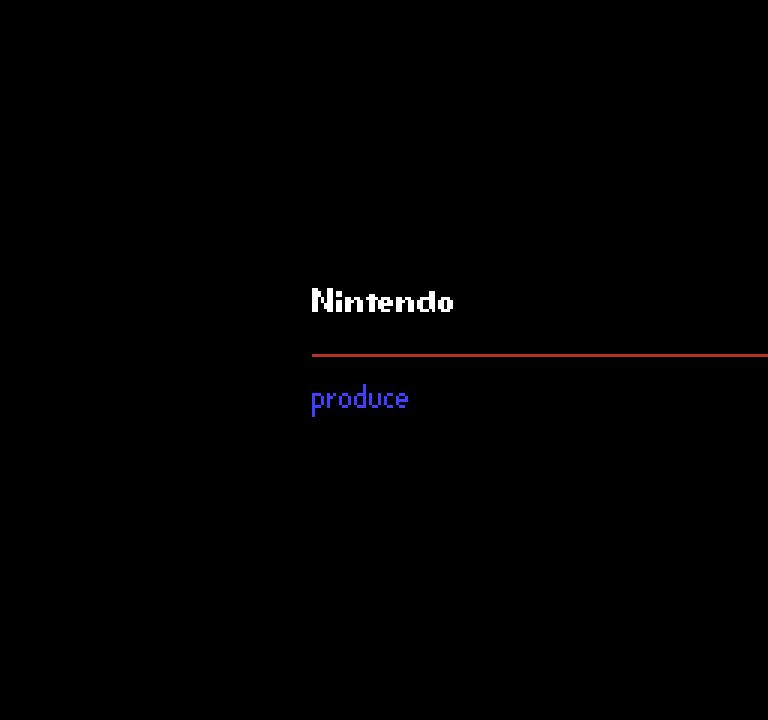
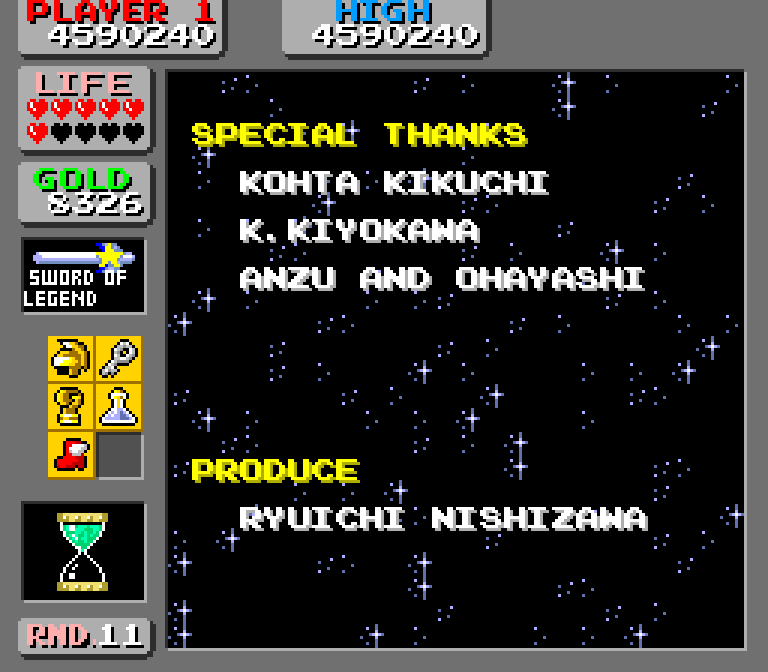
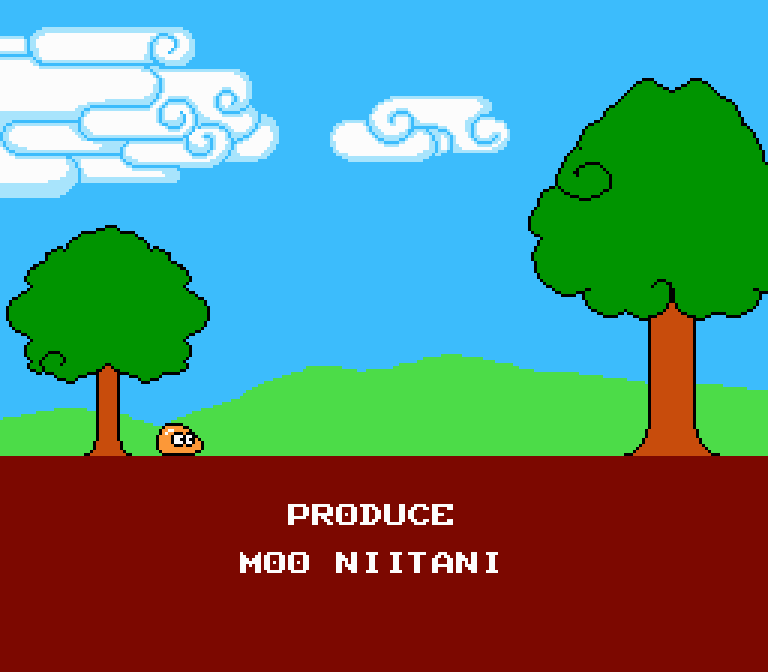
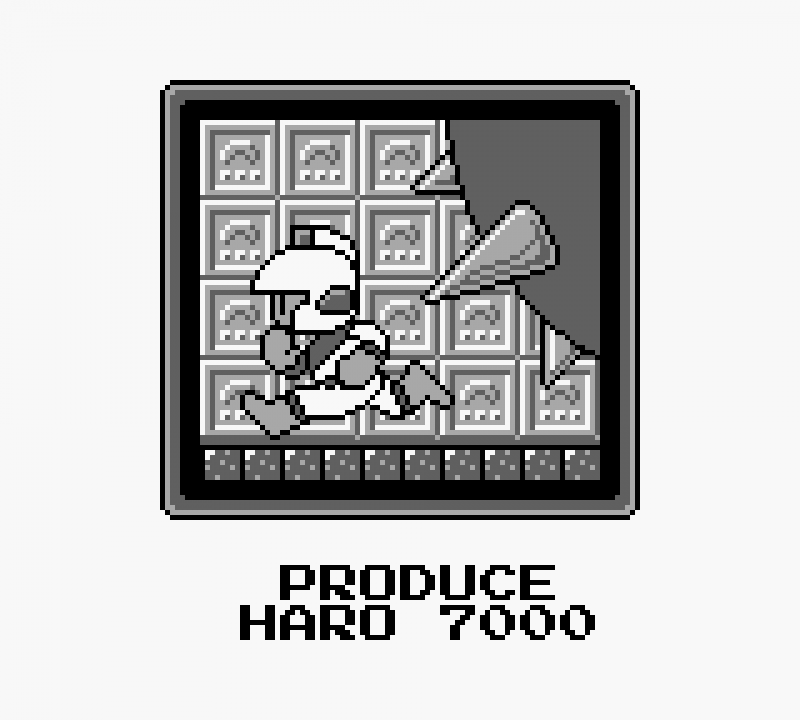
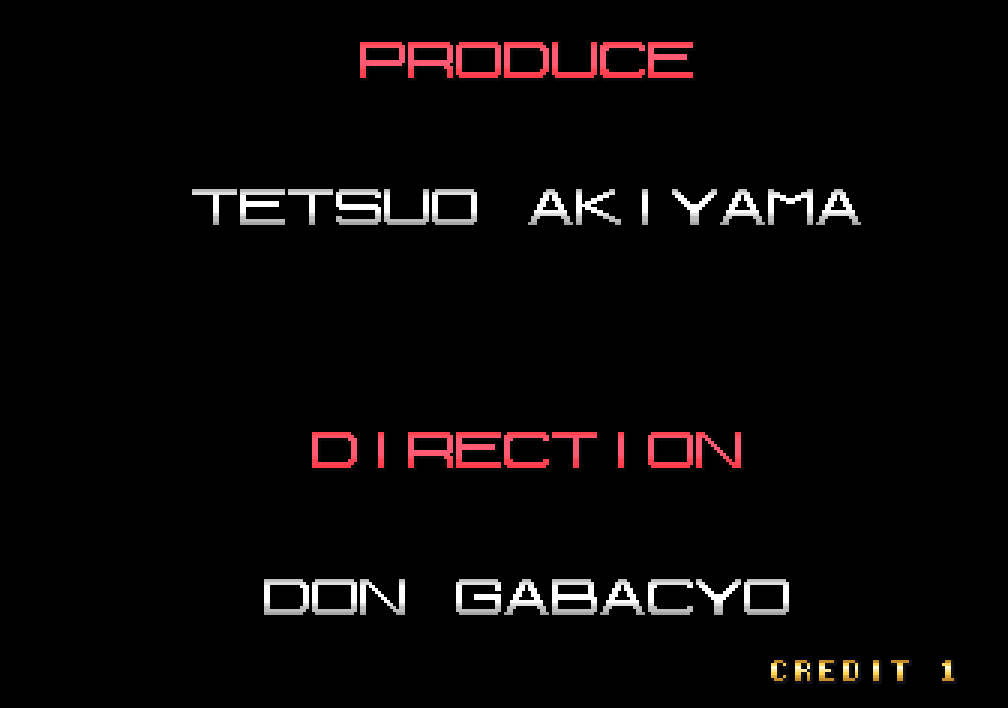
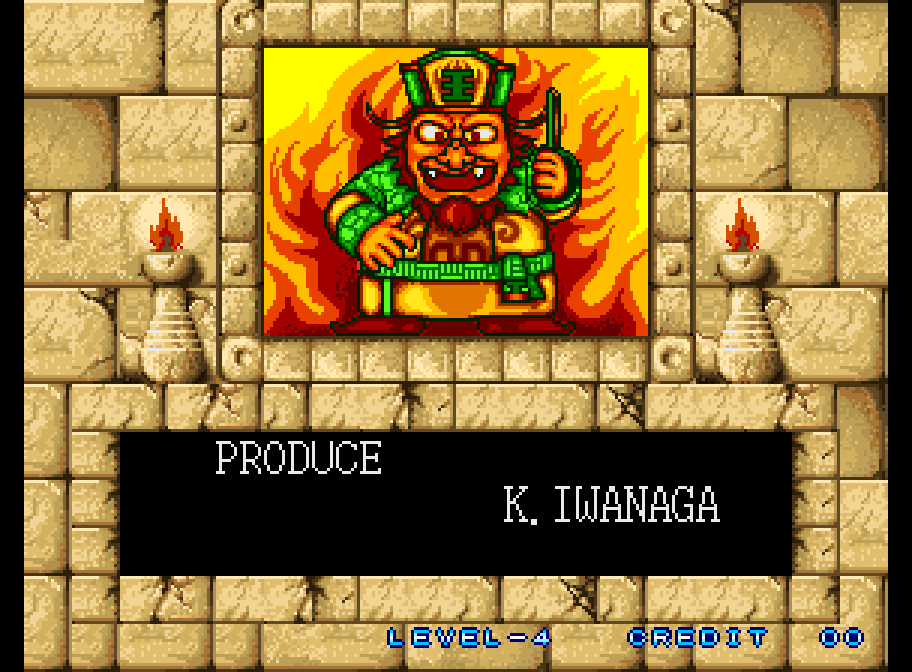
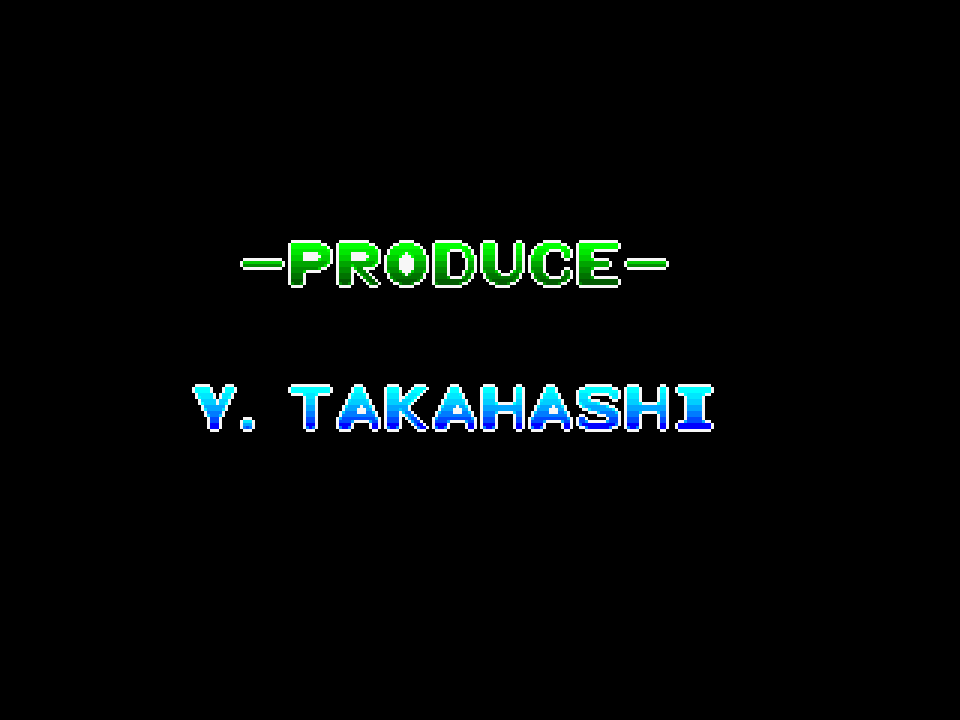
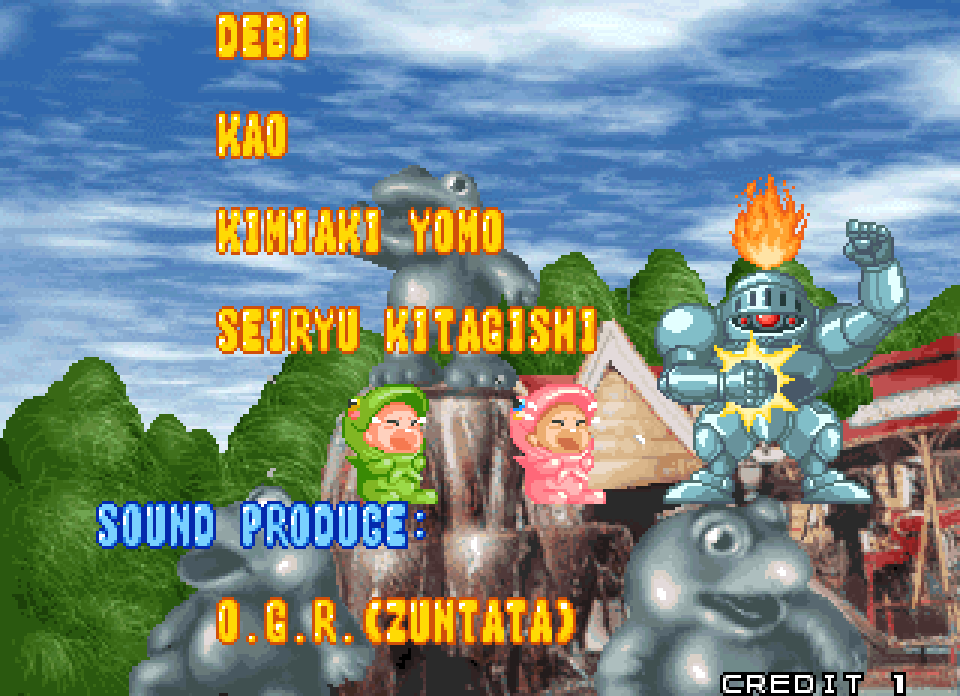
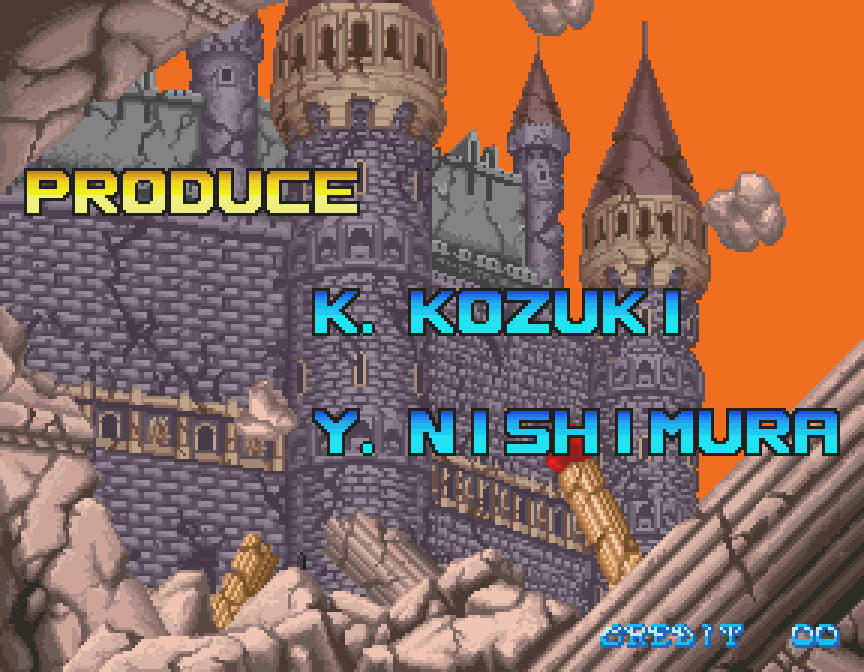
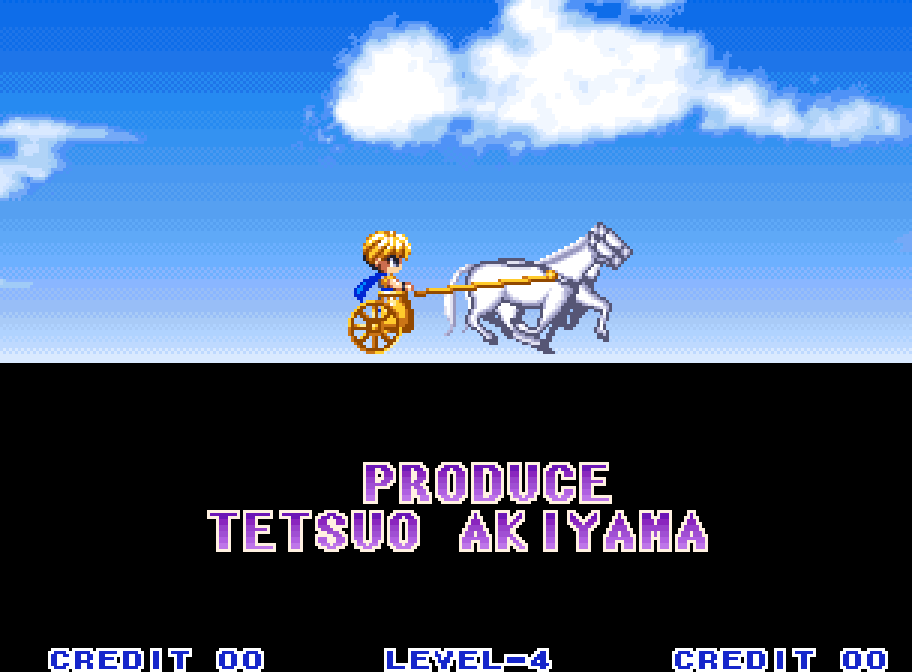
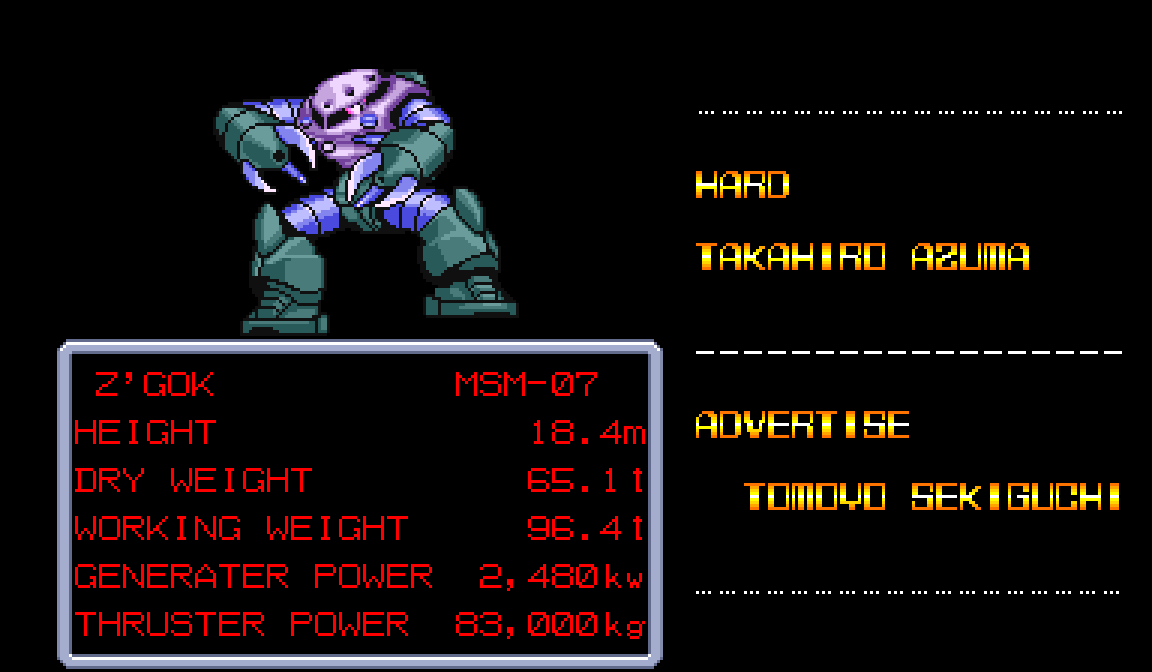
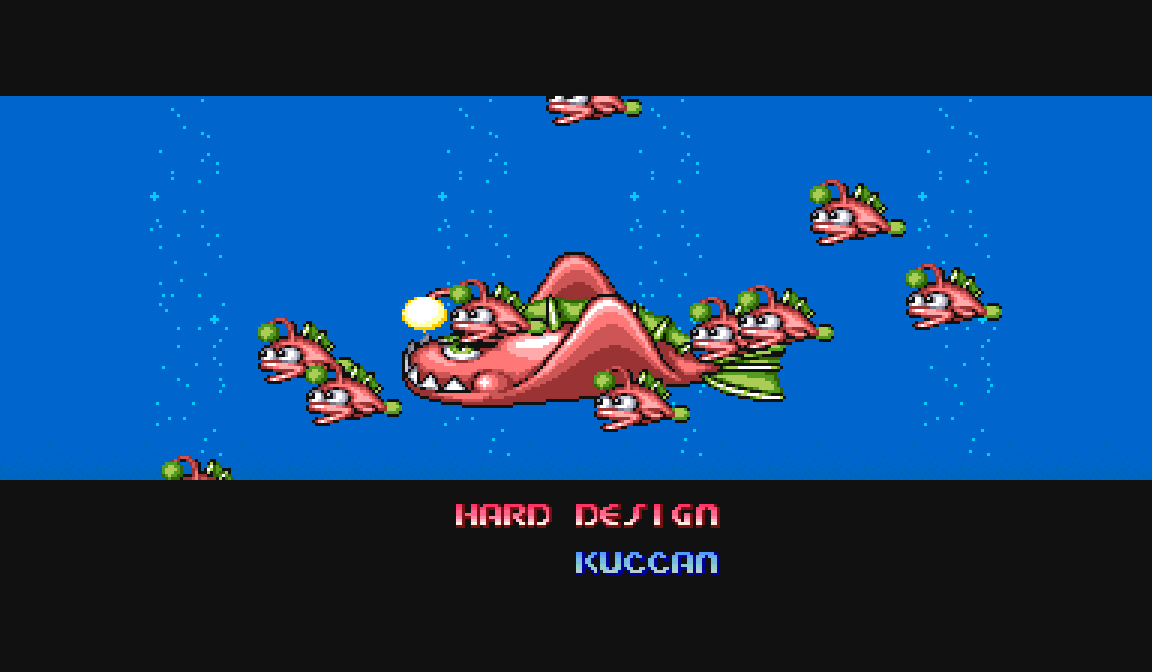
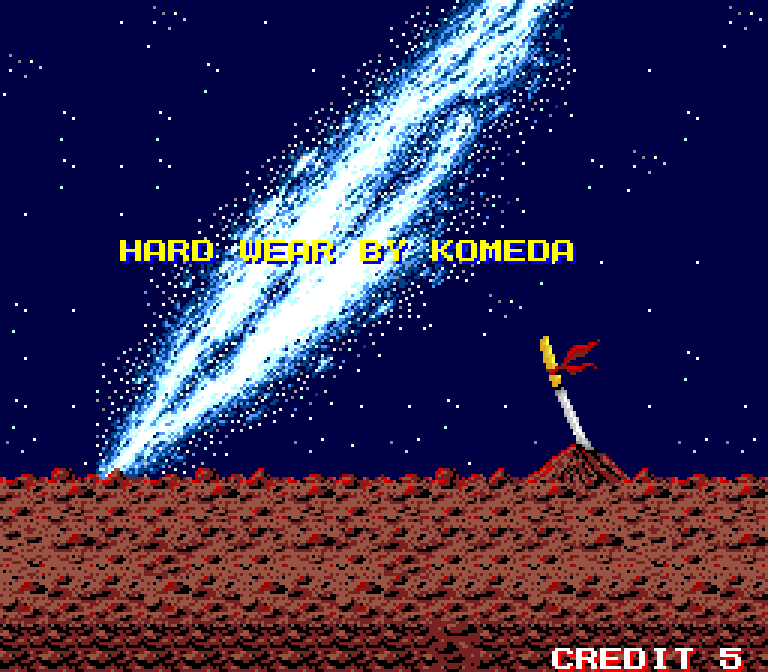
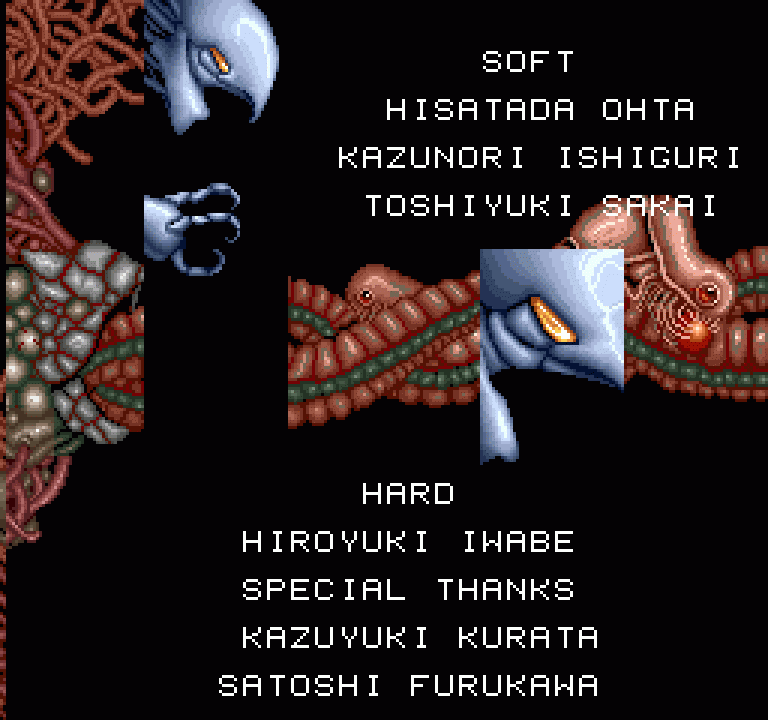
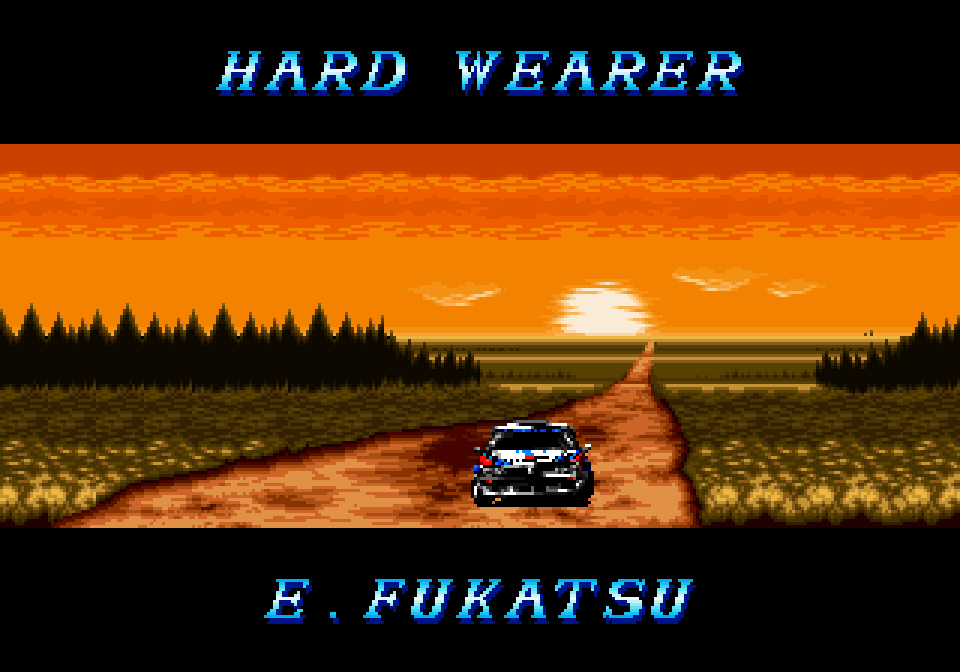
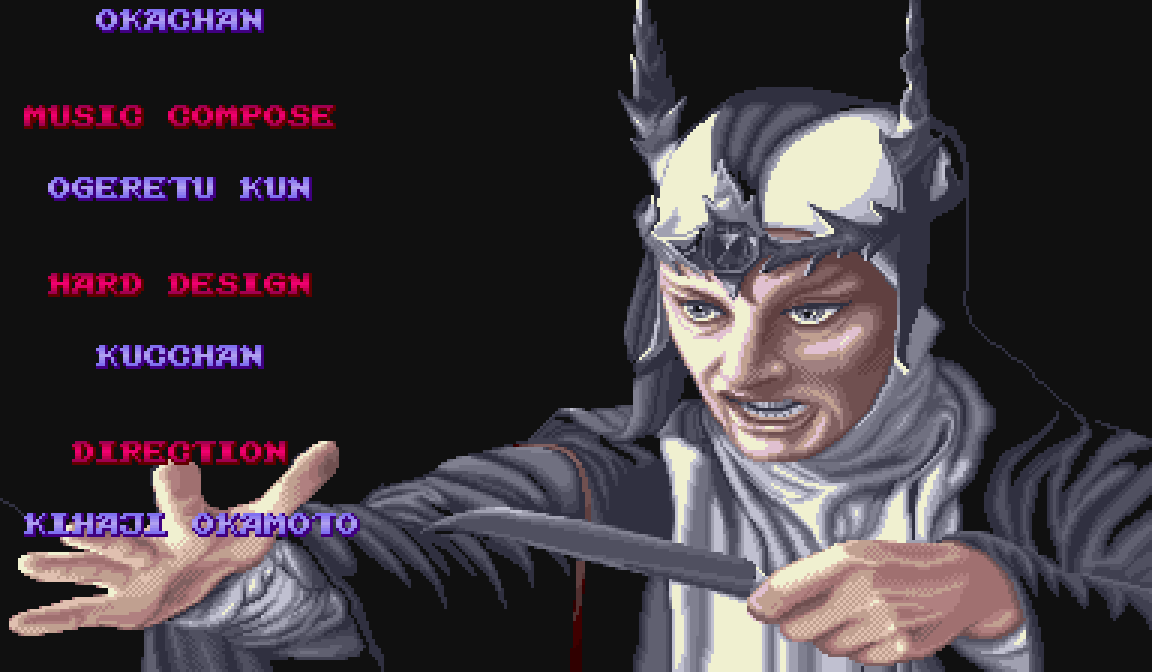
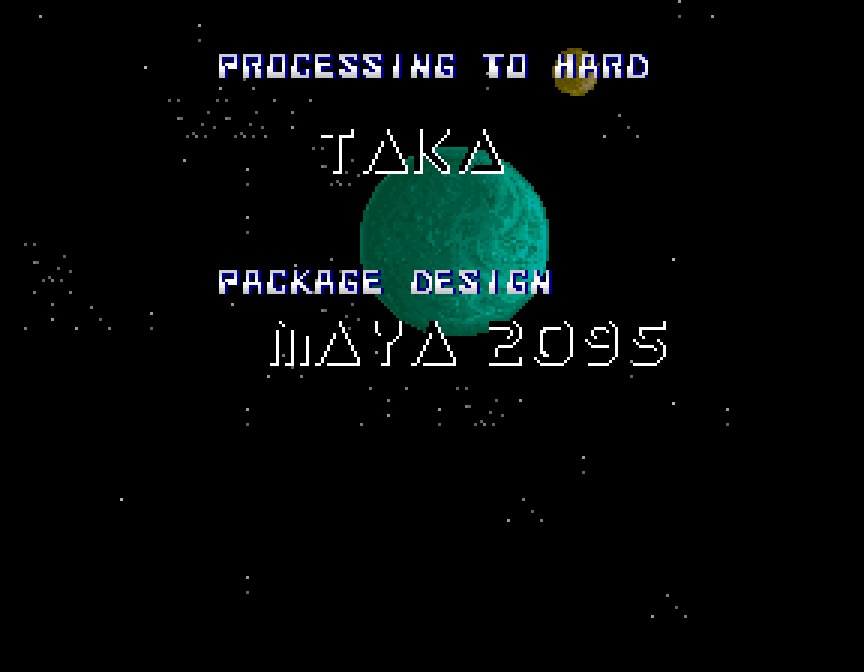
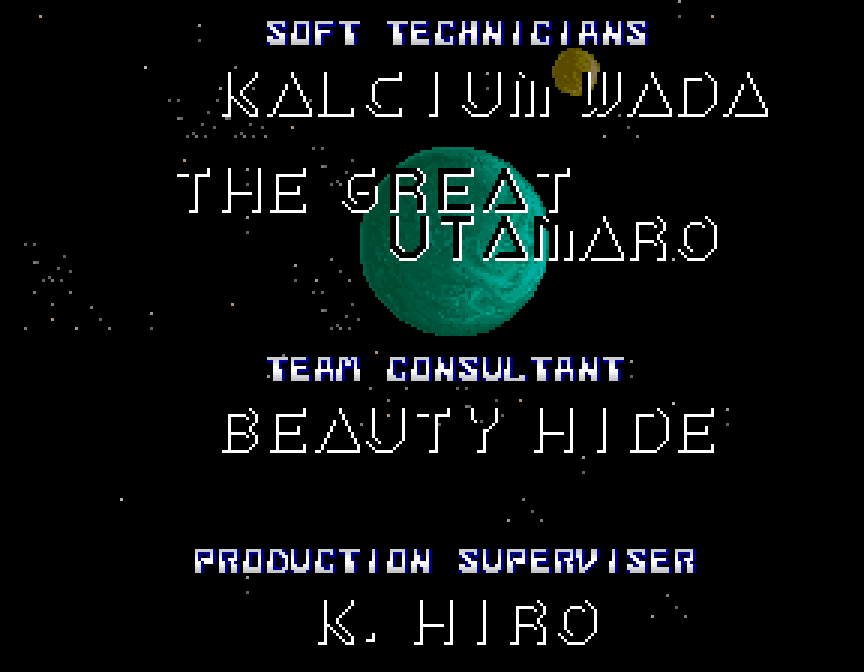
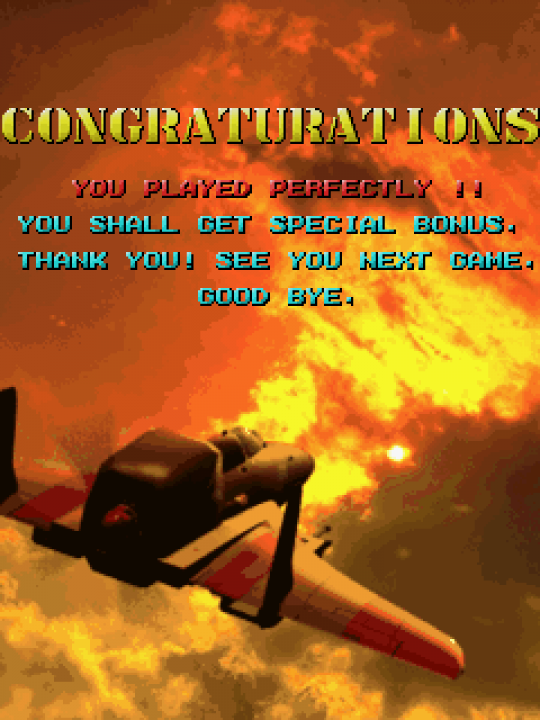
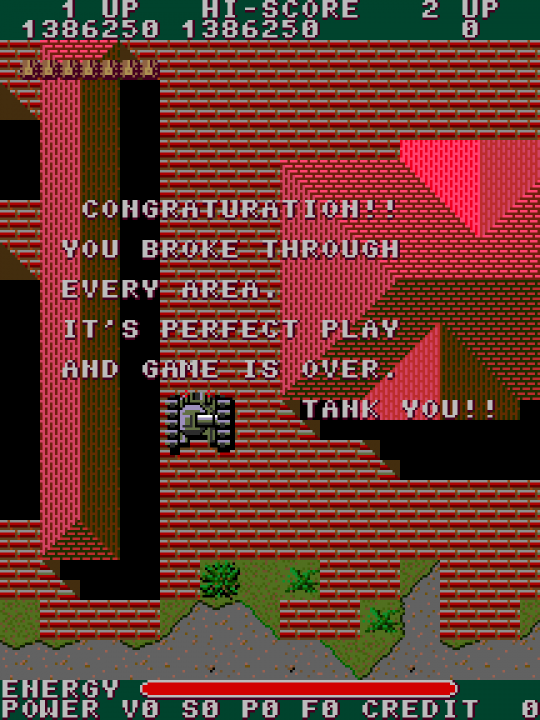
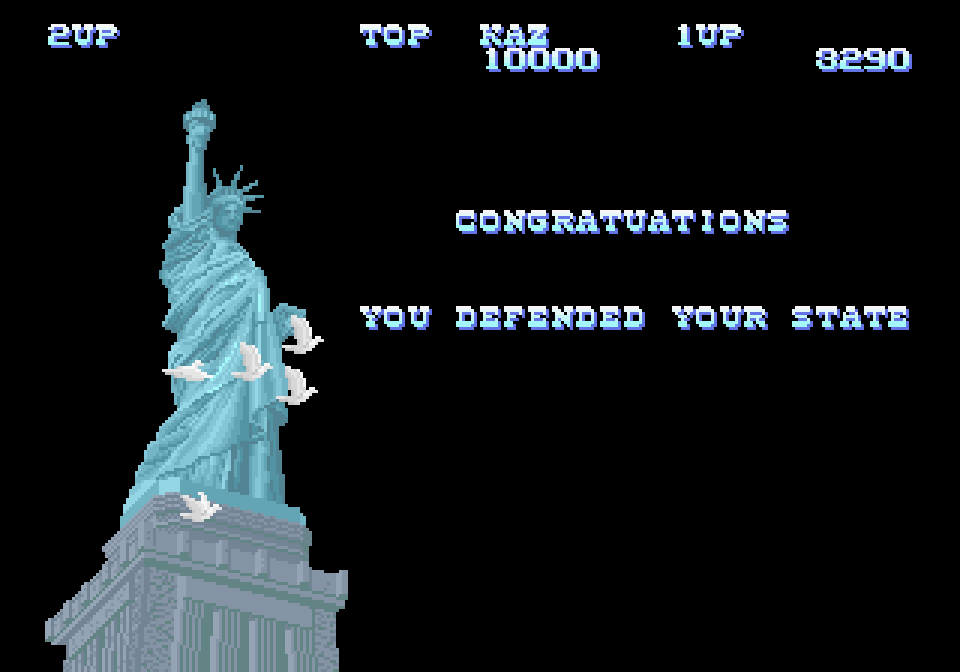
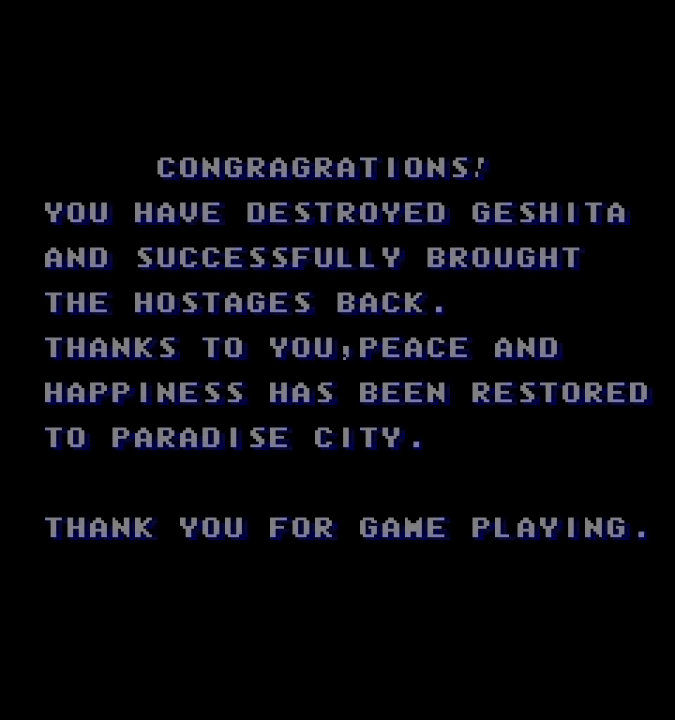
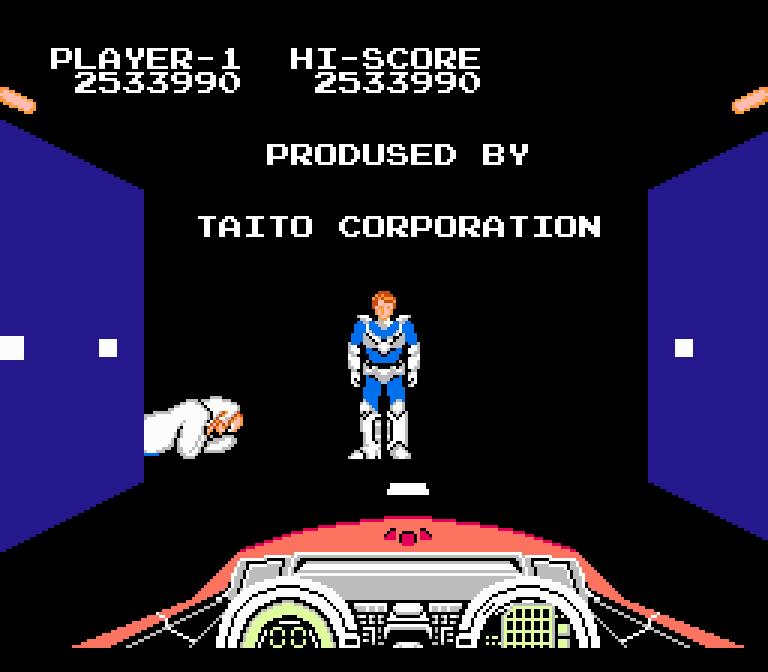
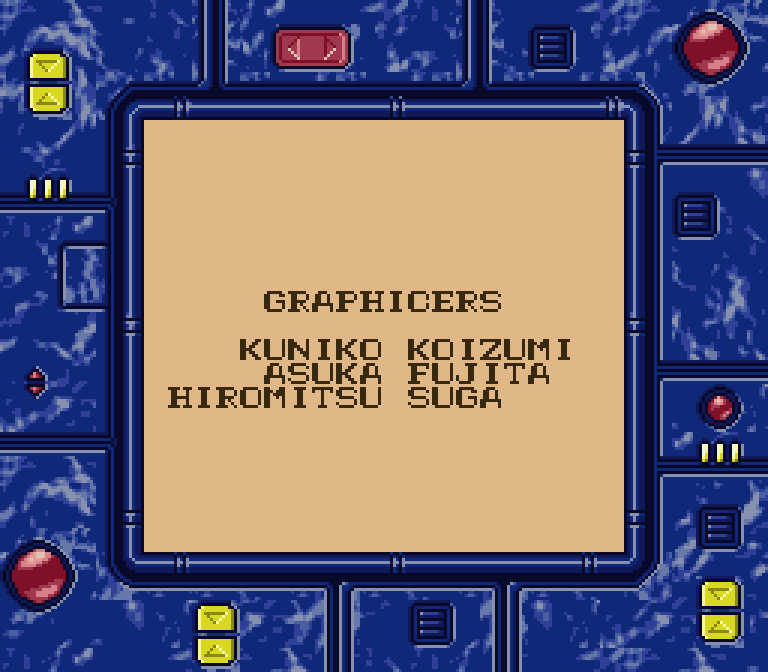
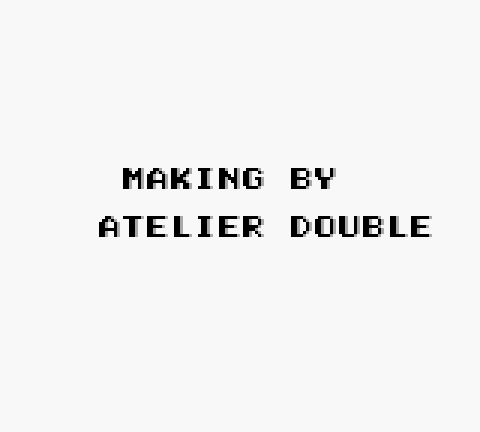
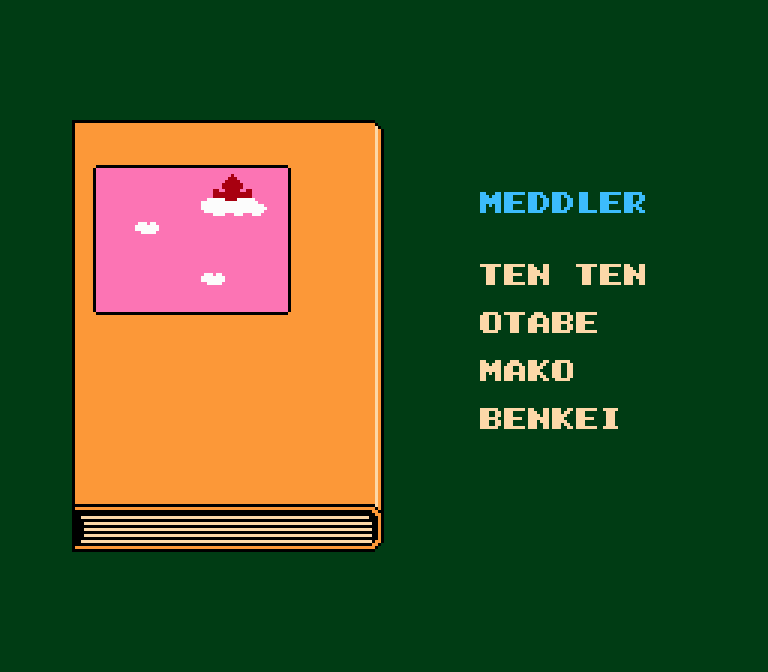
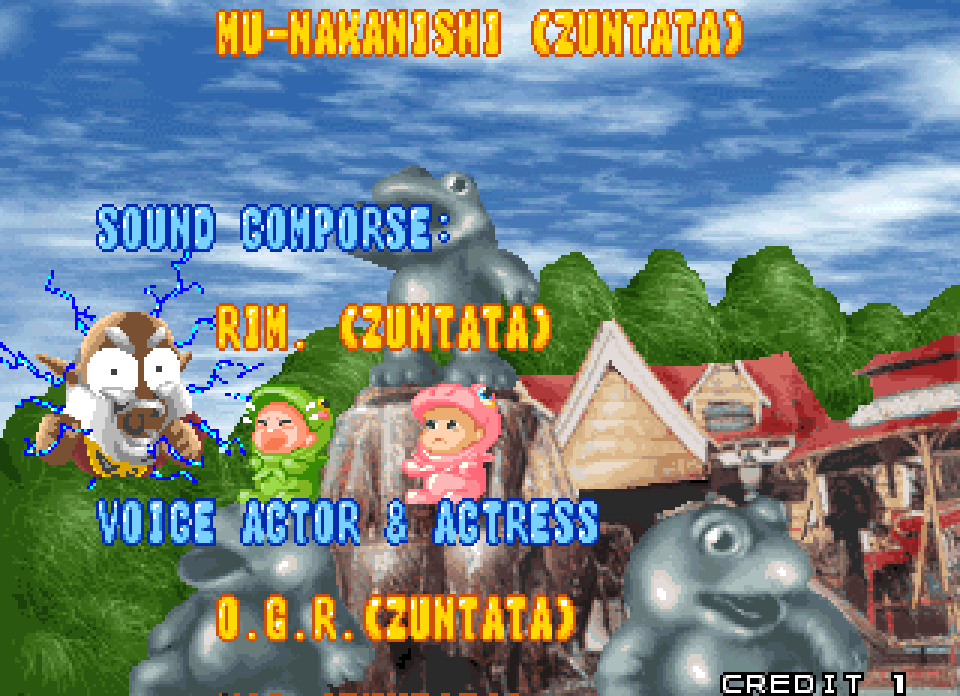
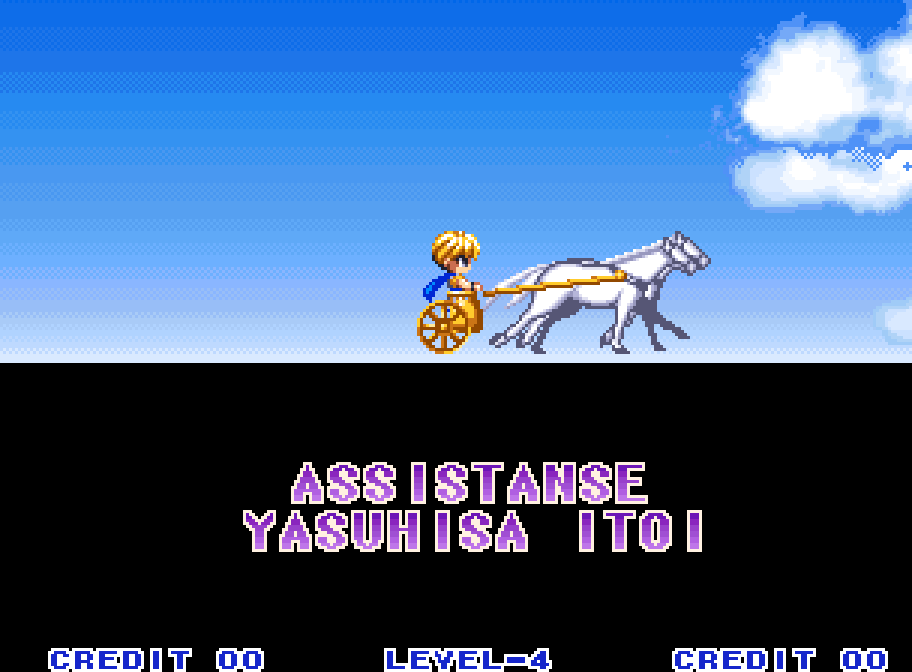
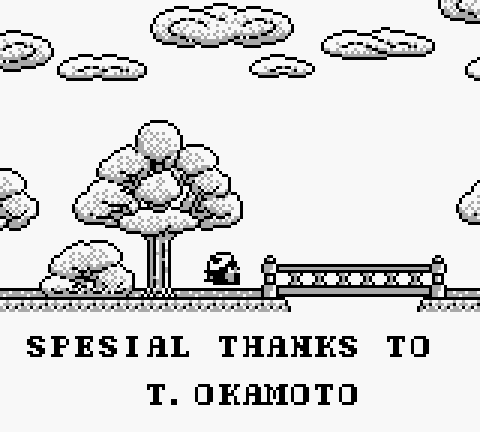
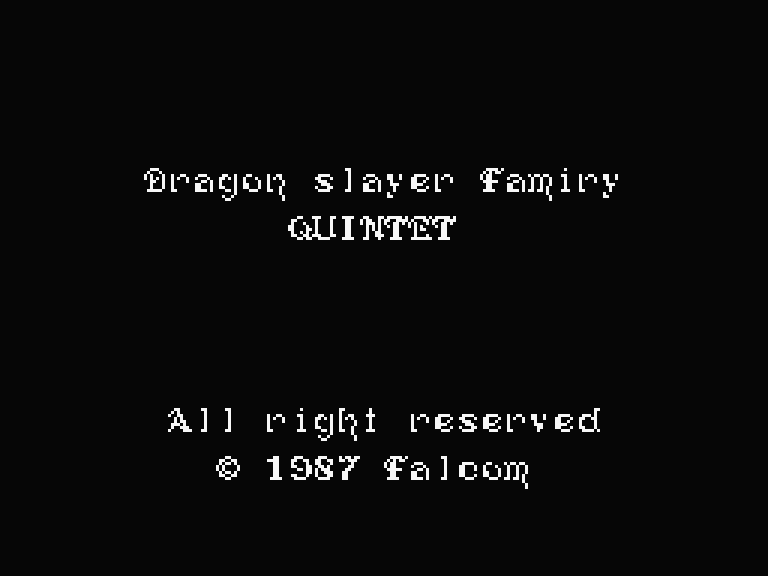
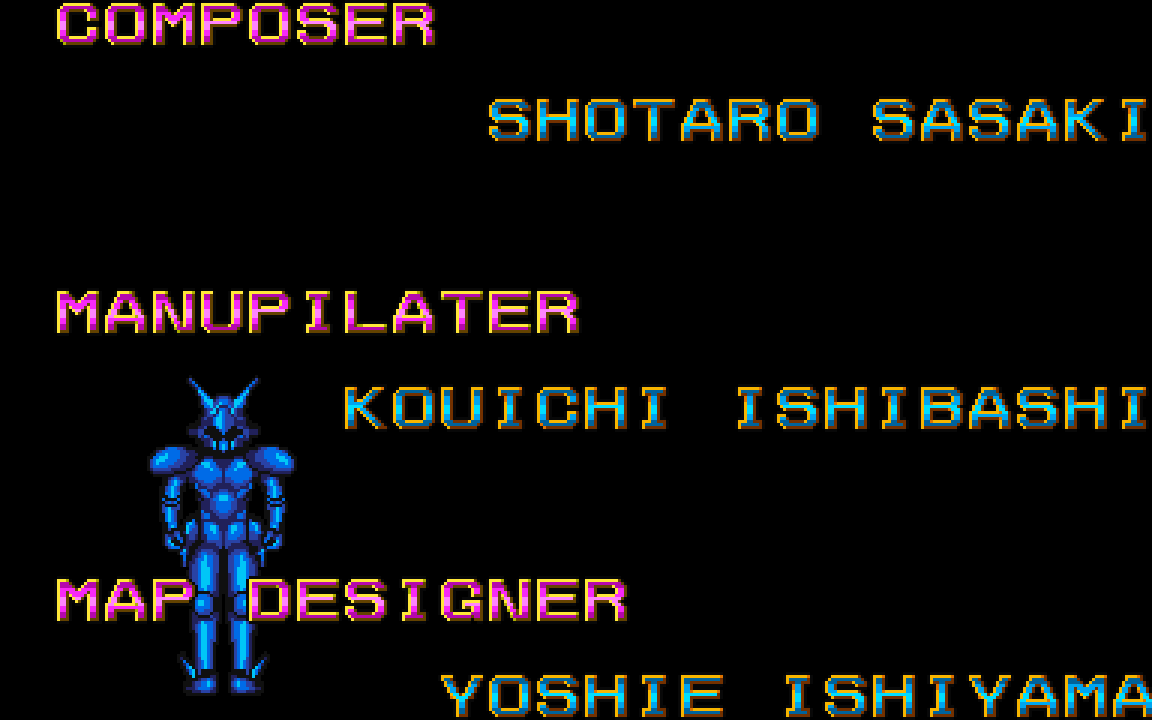
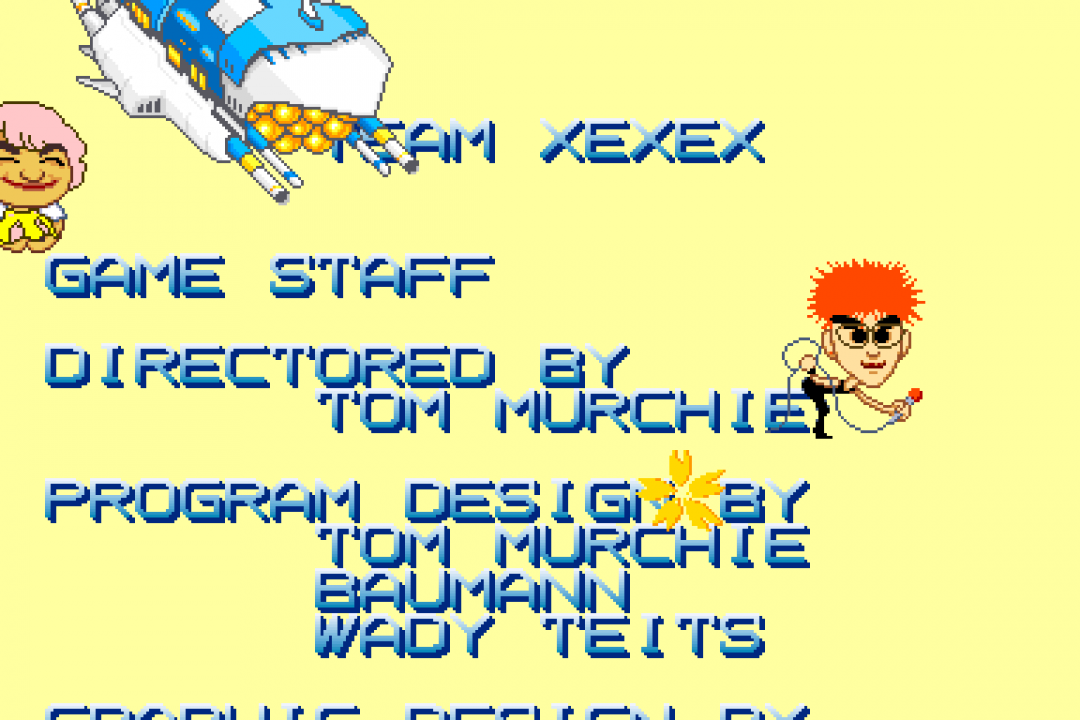
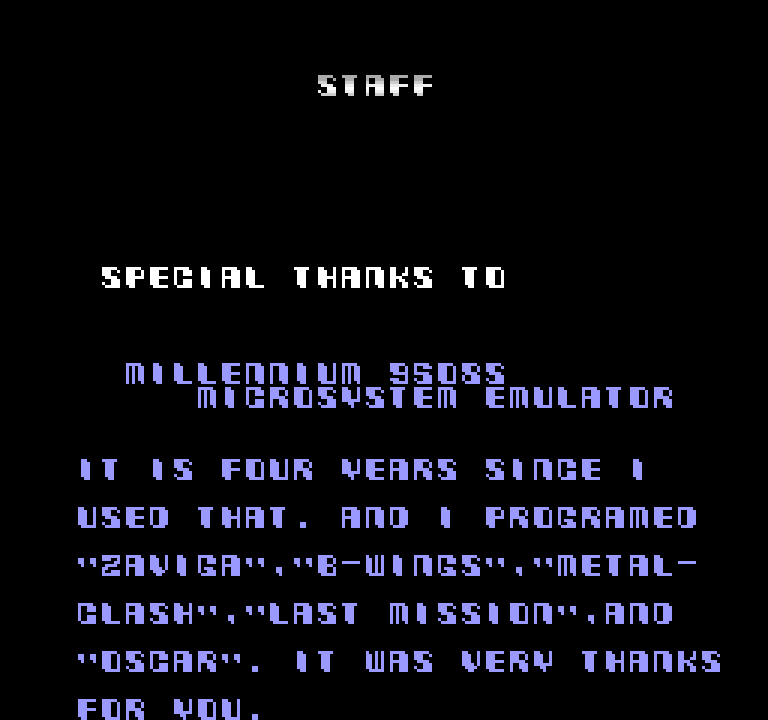
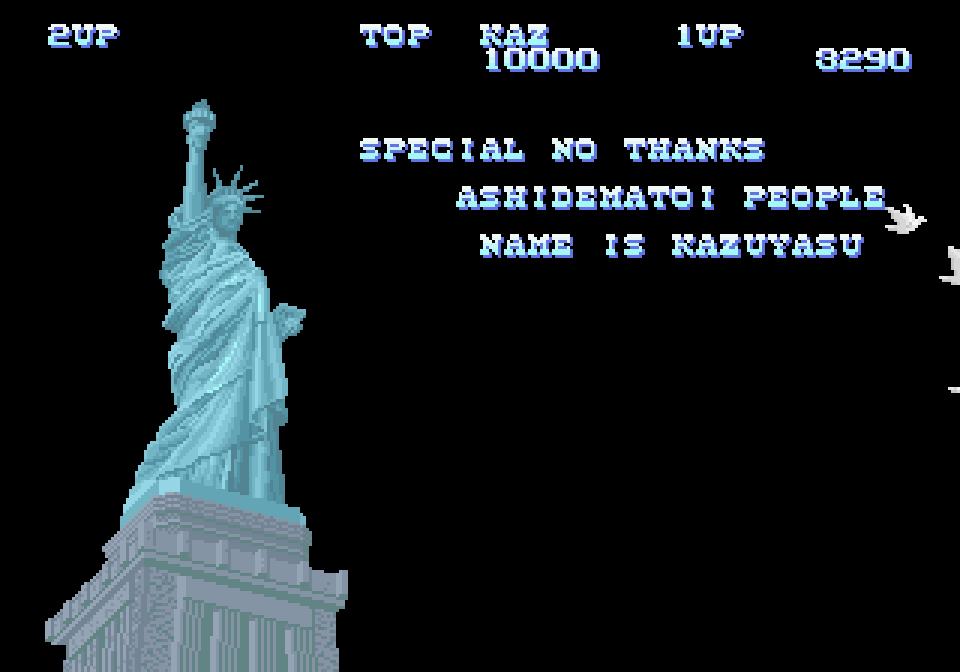
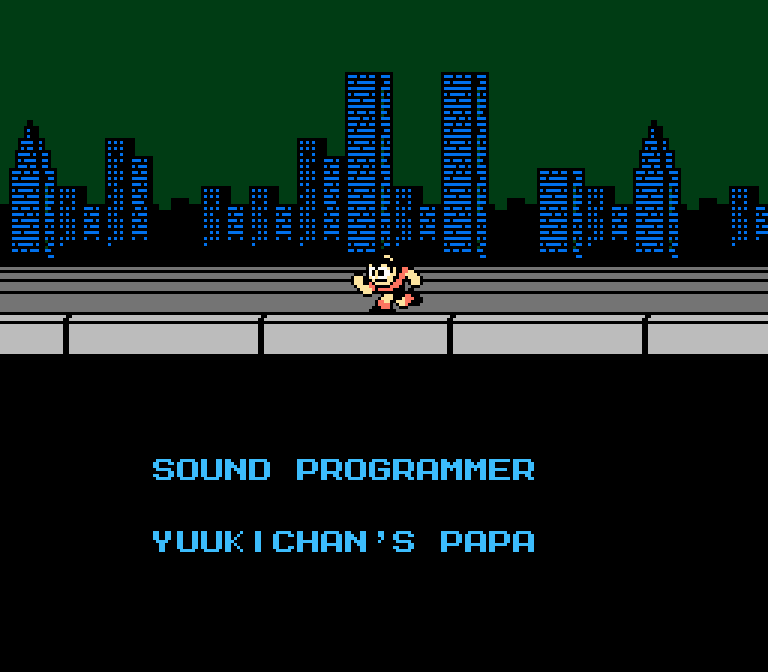
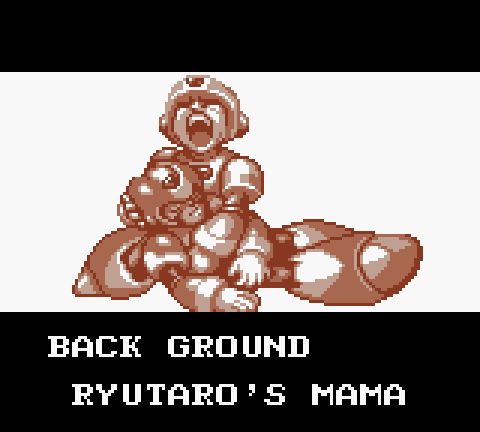
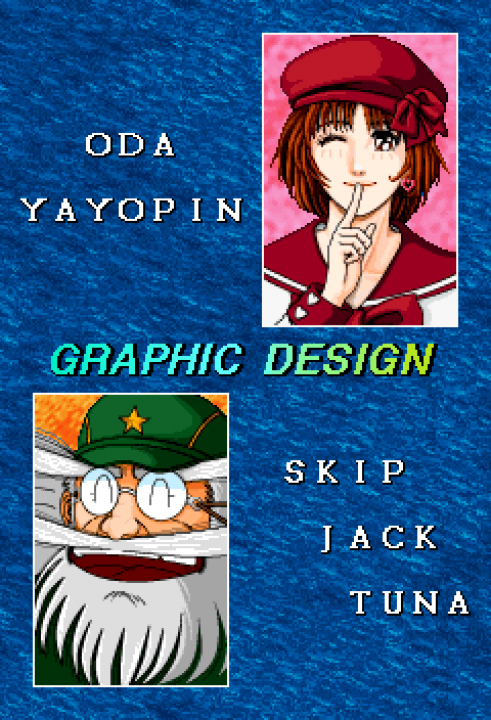
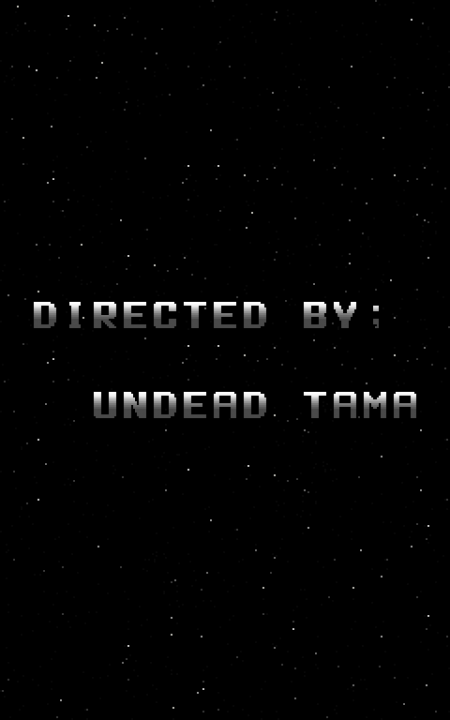
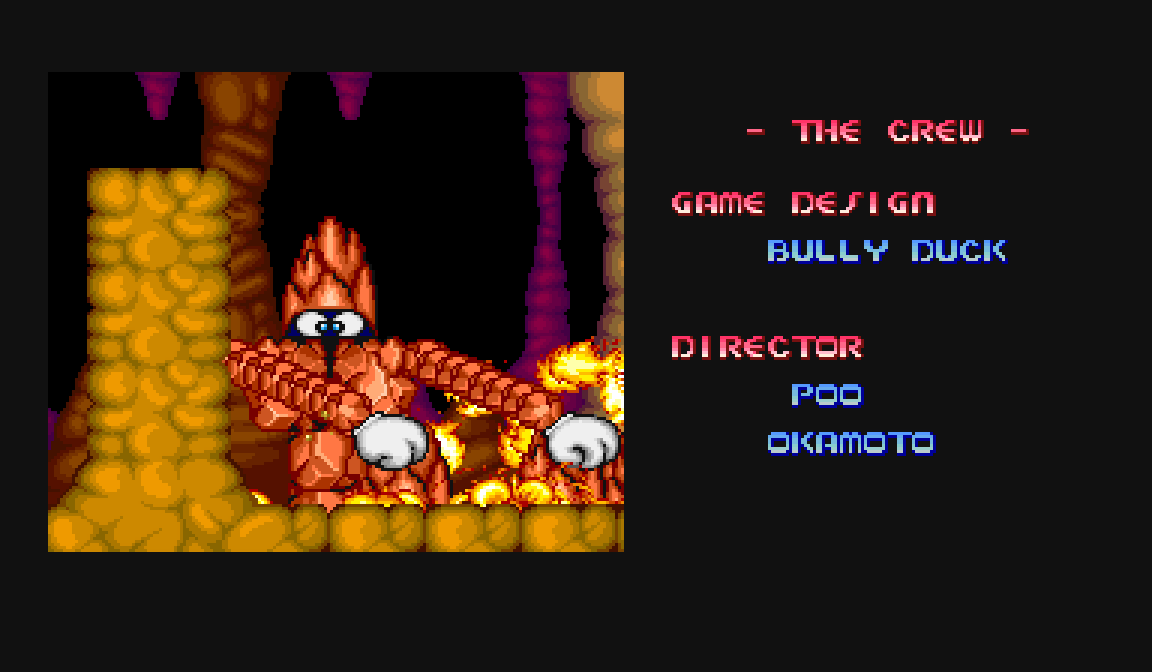
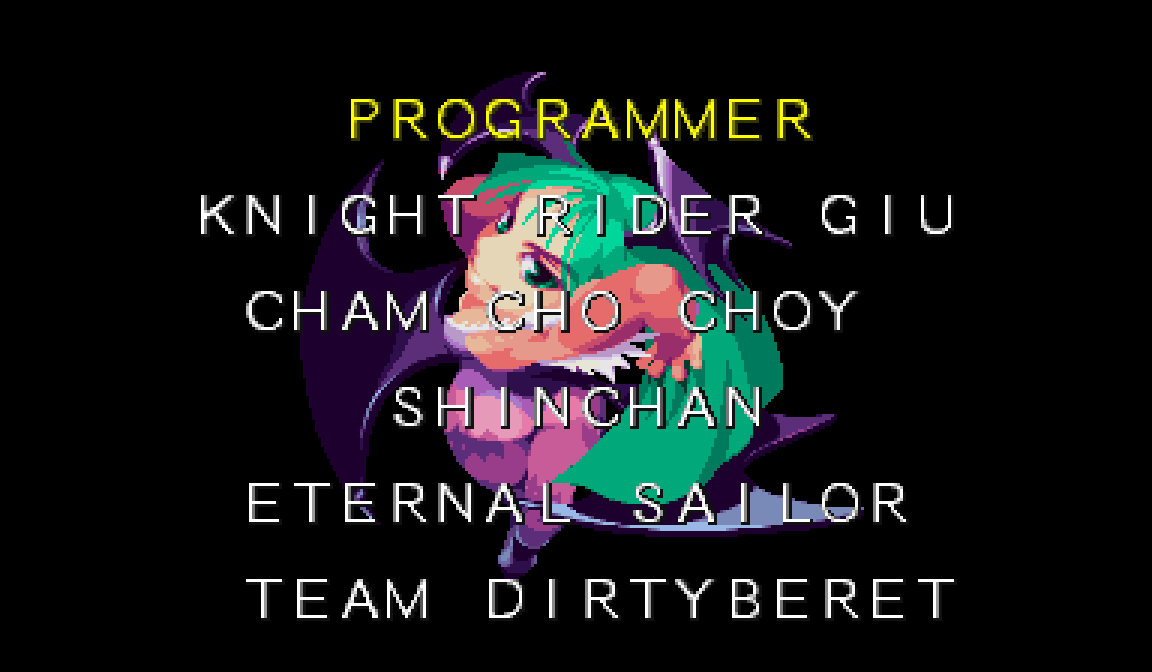
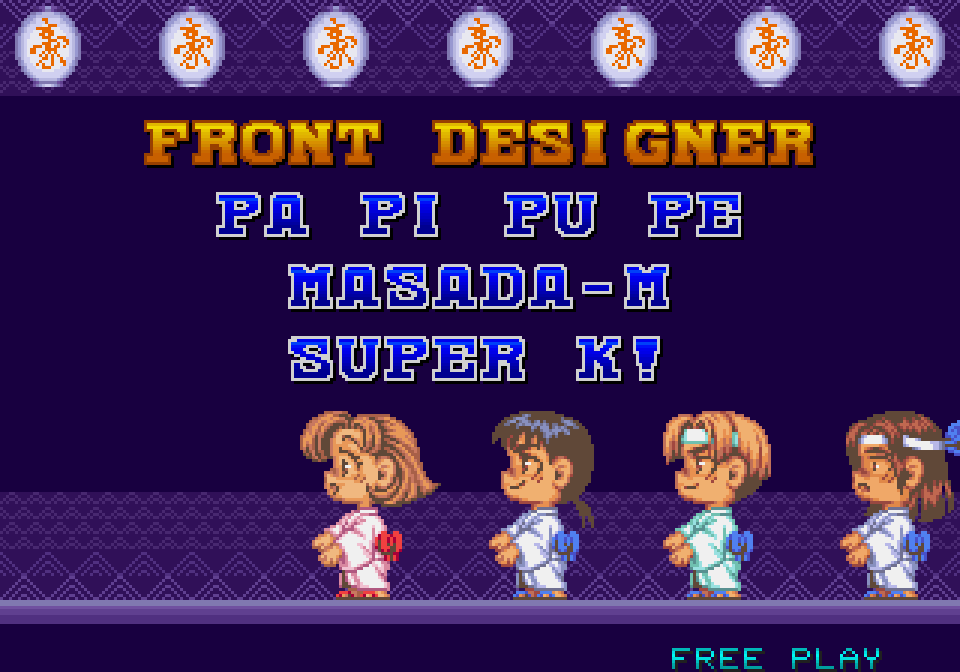
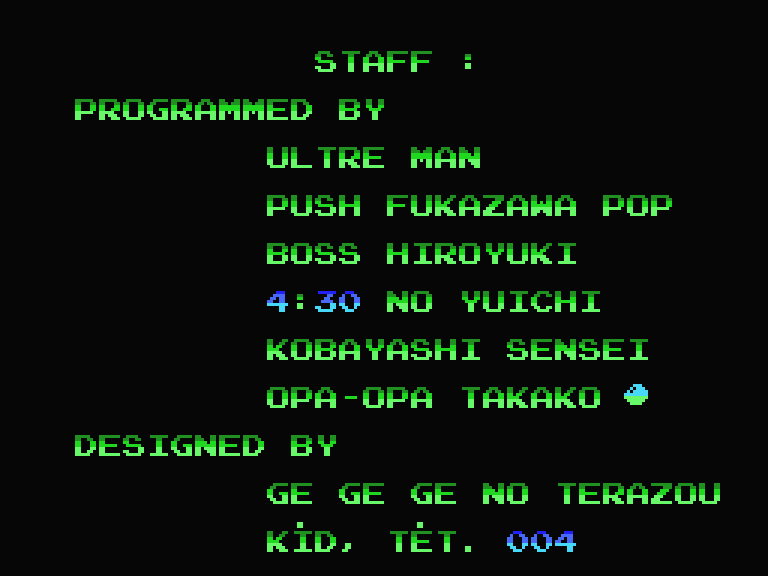
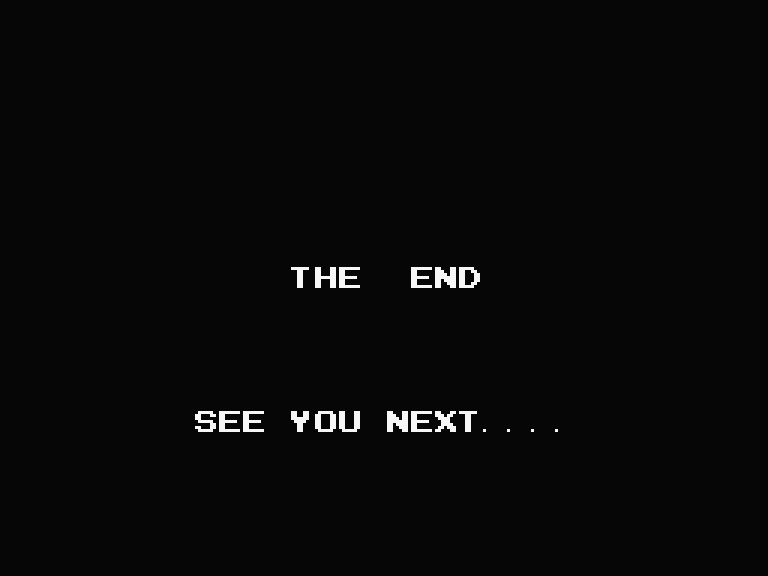
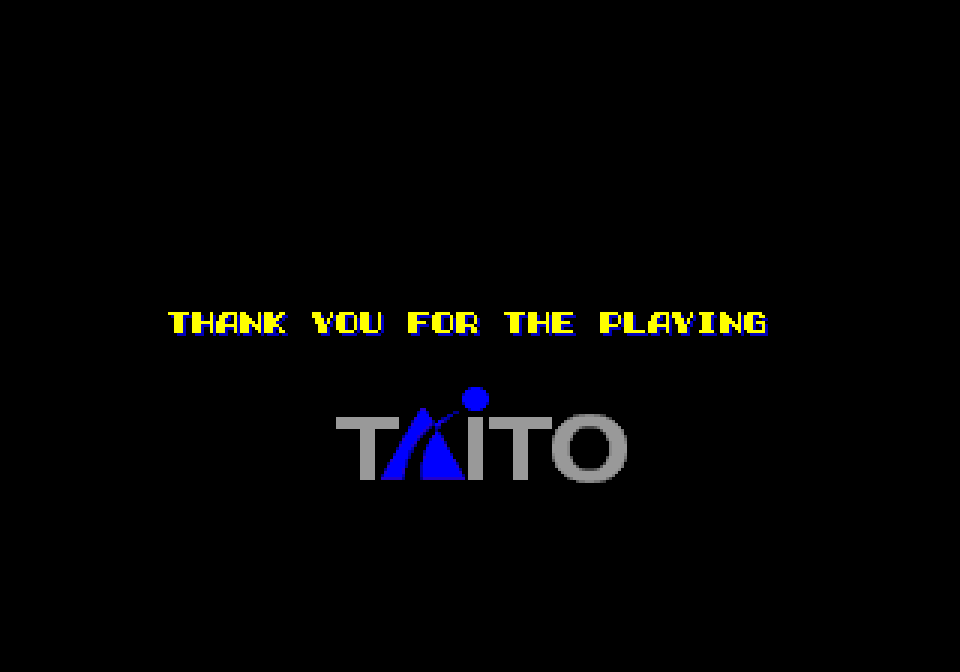
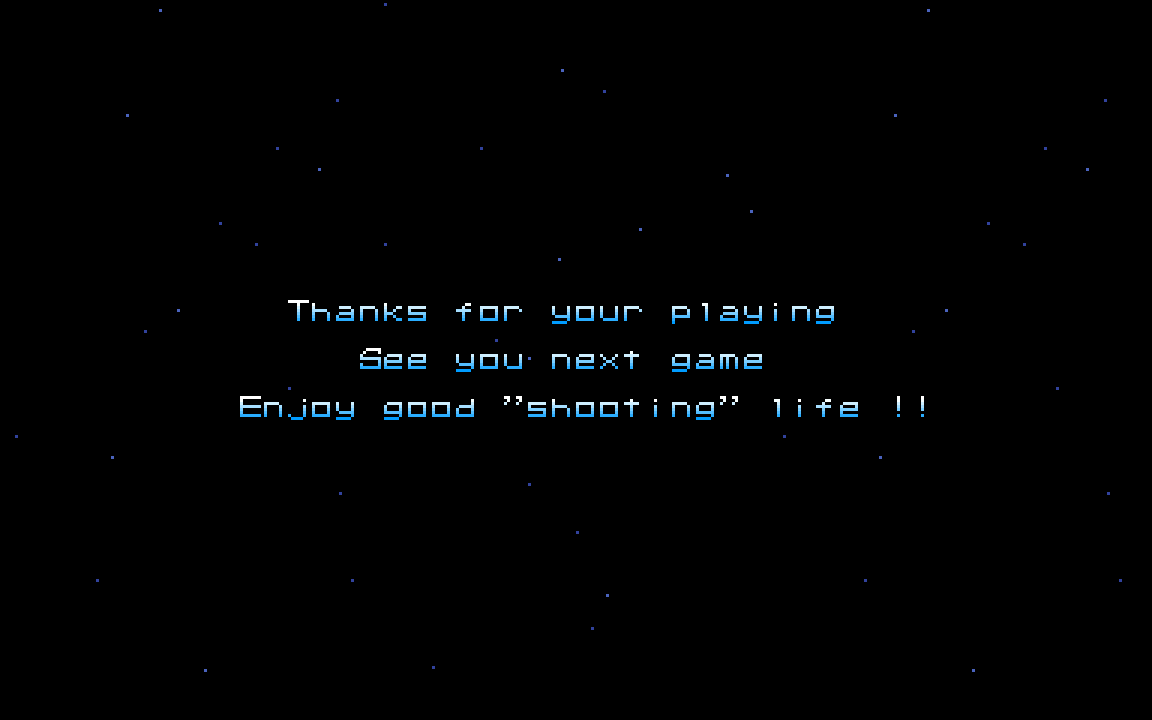
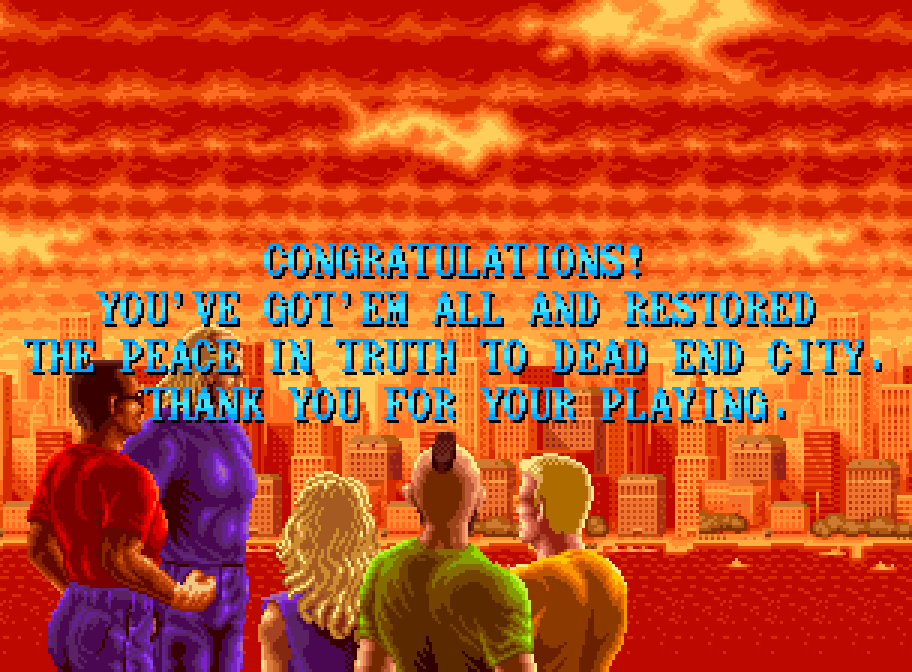
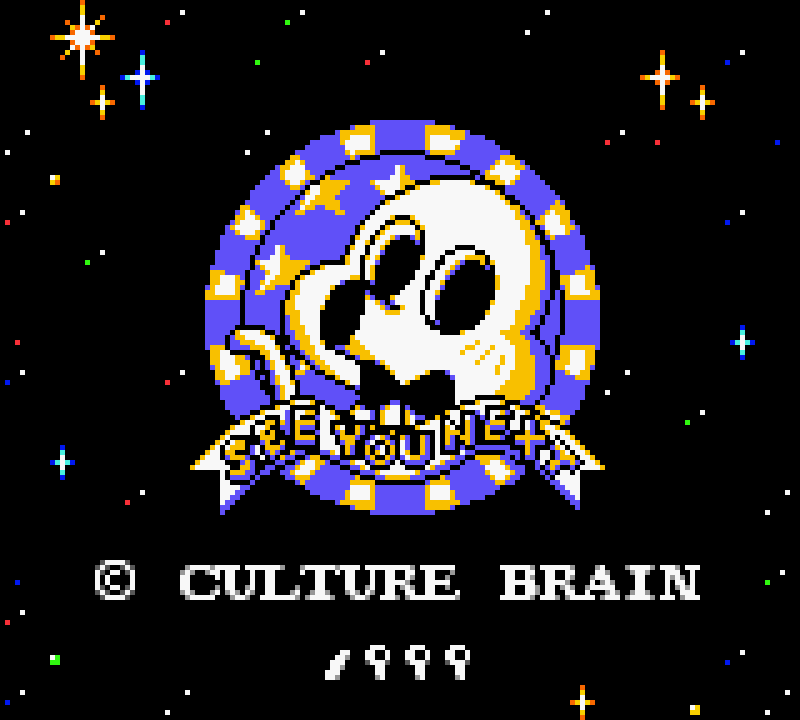
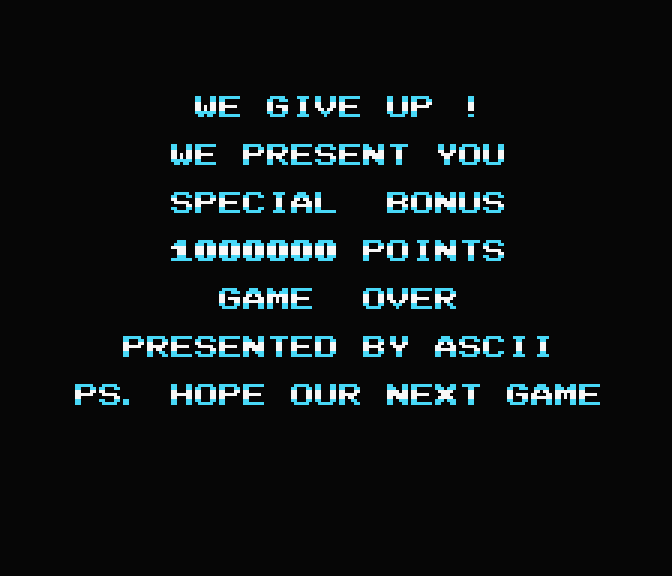
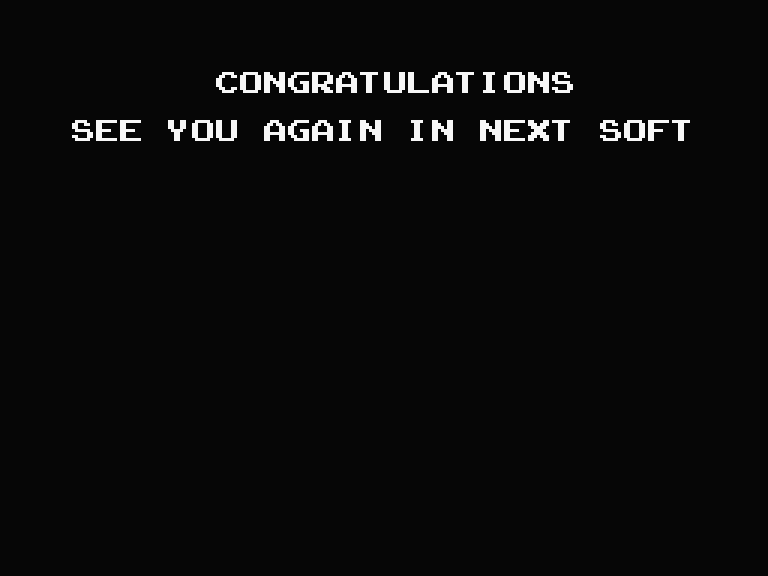
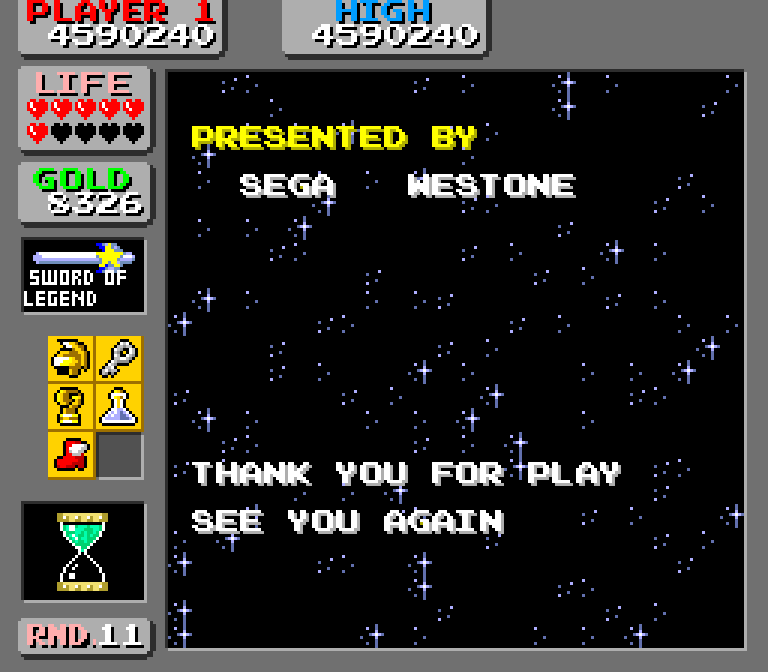
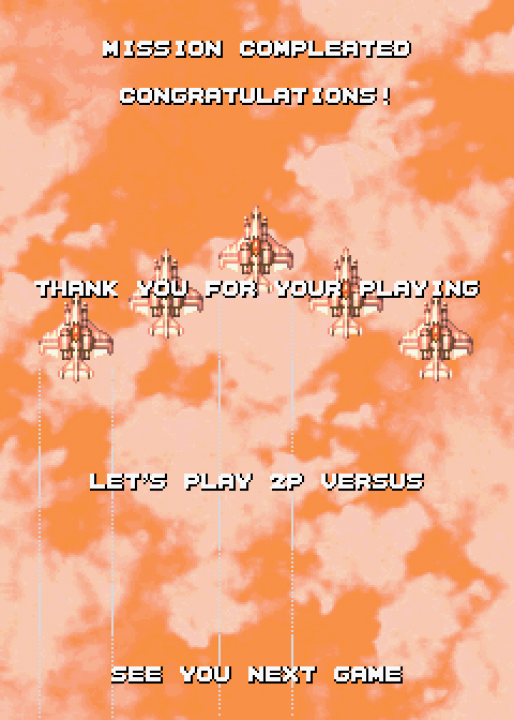
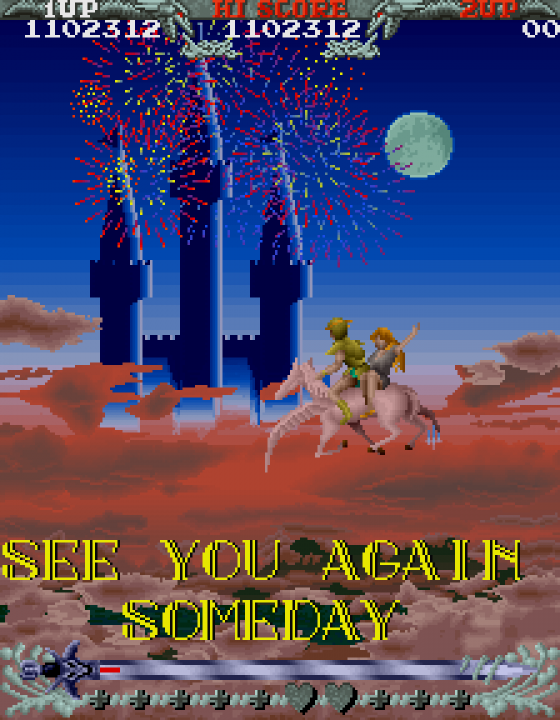
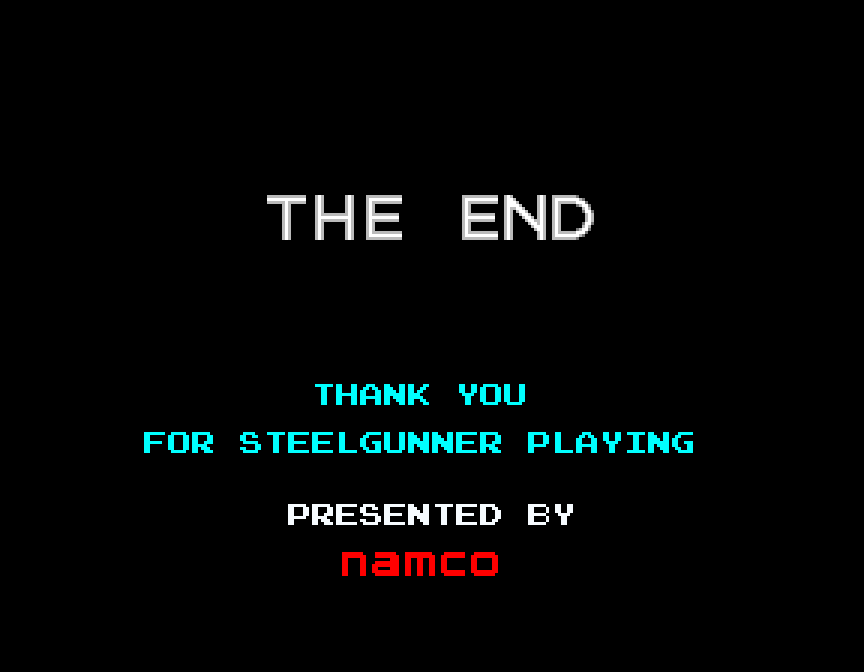
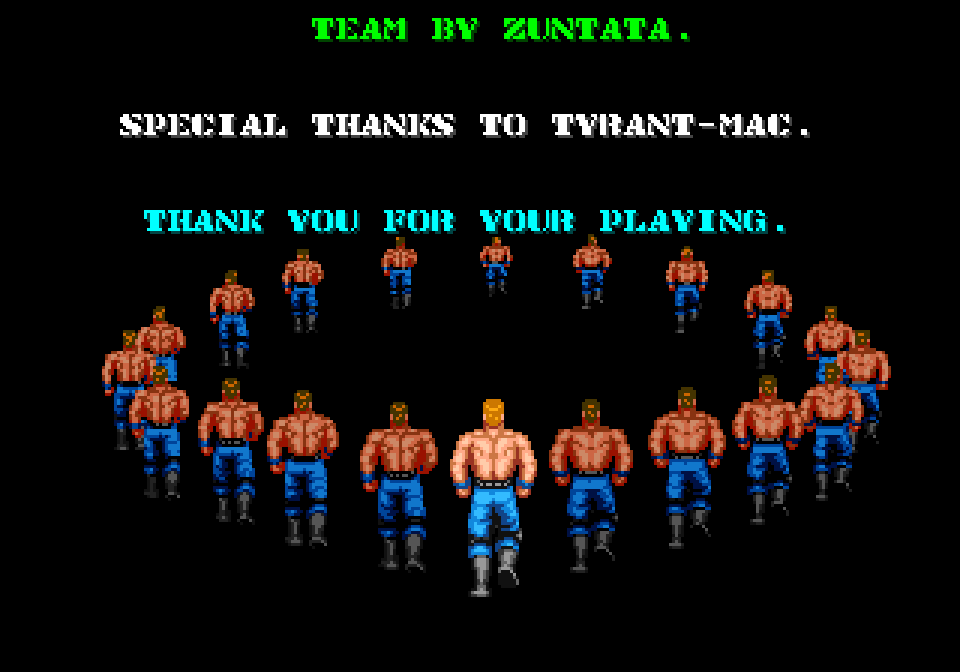
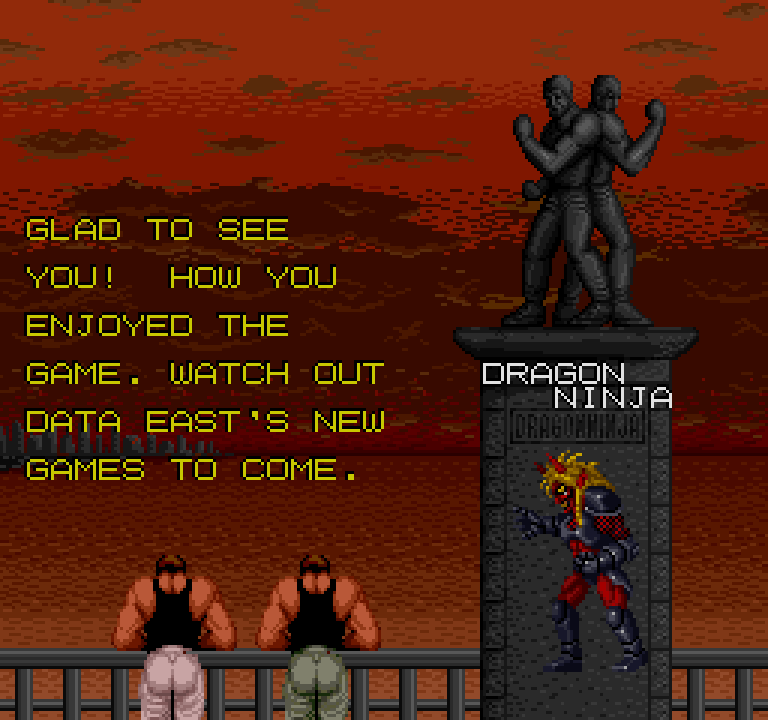
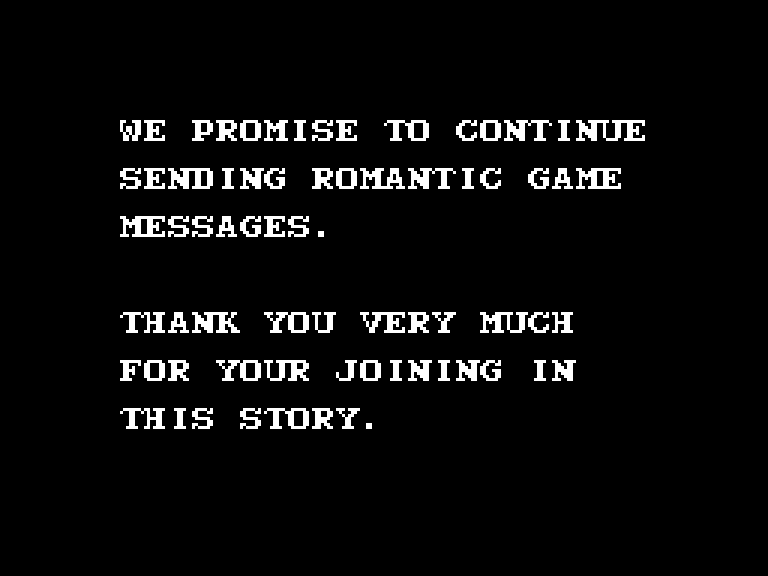
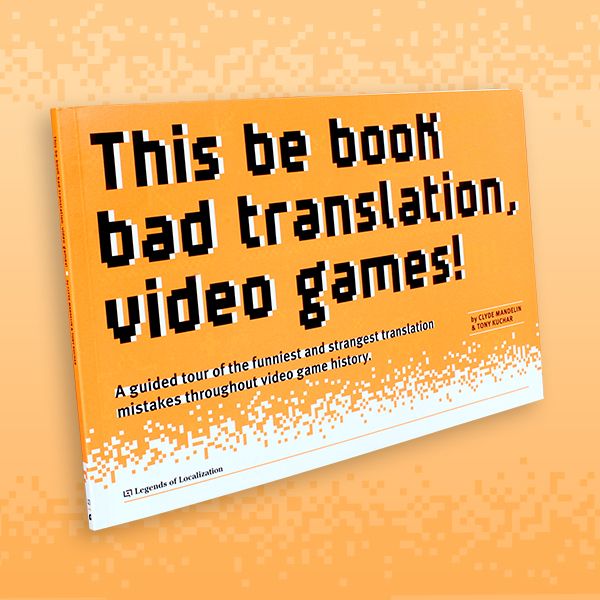
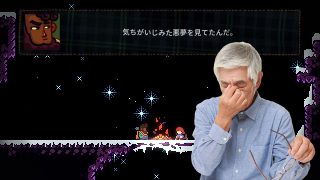


I’m honestly surprised you didn’t include a picture of the ending screen from Ghostbusters on NES.
Probably the most famous “conglaturation” message, especially after the AVGN treatment. What’s weird is that it’s an Activision game and thus has no reason for such errors. It was ported by a Japanese company, but they had the original ending text.
I thought about it, but lately I like to share things that aren’t as well known, when possible. Plus now it’s here in the comments anyway!
This always makes me think of Brentalfloss’ “What if VG Endings Had Lyrics?”
CONGLATURATION!!
I’ve never seen such finger speed!
Let’s get a burger!
It was a dream!
We won’t tell if Jason died!
SO STARE AT YOUR BROTHER’S HEAD IN THE SKY!!!
The best part is how they botched the programming in the Japanese version of Ghostbusters (read the text data from the wrong CHR-ROM bank), leading to an ending that is blank for 1 minute, then the hiragana “riri” eventually scrolls up.
The actual text is the same as the English version, except it says “GRATE GAME”.
Sounds like the “l i t t l e m o n e y” of the 80.
https://legendsoflocalization.com/qa-final-fantasy-tactics-has-little-money/
Voltage Fighter Gowcaizer’s ending is the absolute worst for Congratulations misspellings
http://www.zanyvideogamequotes.com/gowcaizer/thanks.png
Configration your play????? Is the game trying to tell me that I did a good job configuring my settings?
Holy crap that made me spit my drink.
That is indeed legendary :O
I wonder if back in the day seeing a full name among a bunch pseudonyms meant that developer was expendable or not as highly valued.
That’s a good point. Or it could also be the other way too – they’re so loyal and/or confident in sticking with their current employer that they don’t need one? I dunno, it’d be an interesting subject to look more into someday.
Isn’t game development all just truly stuff in the end? XD
TIL Golgo 13 is on the SG-1000.
What’s with “Crazy Stuff”? I’m assuming the intention isn’t to communicate that the development staff is psychotic.
Is “TANK YOU” intentional in T.N.K. III or a convenient typo?
I got used to “produce” but when I was a kid I actually thought they were crediting the people who brought carrots and lettuce to the office.
Change Air Blade manages “congratulations” and correctly puts an apostrophe in “let’s” but fumbles “compleated”. To be fair I might spell it that way if I didn’t know how.
If you do a Google image search for “Dezani World” it’ll make sense why the staff would call themselves crazy 😛
All I get are news articles about a Magic: The Gathering player.
Oops, try “Dezeni World”
In Sonic The Hedgehog 1, there are some some hidden credits:
https://tcrf.net/Sonic_the_Hedgehog_(Genesis)#Invisible_Credits
Aside from the proverbial “Congratulation” and other common variants, I’ve also seen things along the lines of “Thank’s you for playing”.
Too bad I can’t remember the title of the culprits in question.
“Thanks a Million.”
Besides the common “Produce” and “Compose”, I often see the word Background split in two as in “Back Ground Design”
“You Have an Amazing Wisdom and Power.”
I once encountered this in an obscure arcade puzzle game called Pnickies, and used it for a LiveJournal icon for many years back in the day: http://nleseul.this-life.us/pnickies/thanxforplaying.gif
Sadly, I didn’t save any screenshots of the full context.
This is a subject near and dear to me; I’ve transcribed and posted thousands of credits listings from Japanese releases on my website as a reference source. Mostly to find uncredited contract developers, but often you find hilarious-sounding names mixed in as well. Beyond the Beyond has some of my favorite pseudonyms in any game: Naked Junky, Mr. Doctor, Taco Momimomi, and of course CANADAIN PALADAIN. http://raido.moe/staff/ps1/ps1_beyond_the_beyond.html
I’ve also come across cases where Japanese names are written in Greek, Cyrillic, or even Thai characters.
I love that an example of ‘Stuff’ instead of ‘Staff’, Ikari (MSX2), also has an example of ‘Produce’.
The way you half-translated A Link Between Worlds’ Japanese name confuses me. Is that what it’s called in official documents or something?
Haha, I expected someone to ask about that. I wasn’t sure what to do either, so I just went with what the game’s title screen says:
yeah, the Japanese games have been using the English logo for a while now. only the subtitle is in Japanese
I would love to see a “Congratulations” misspelling gallery! I feel like misspellings of that word tend to be some of the more iconic pieces of mistranslation in video games. I feel like I’ve even seen mainstream TV shows have jokes about “Conglatutons!” in them, so I bet there’s plenty of fuel out there for such a piece!
The “See you again someday” send-off feels curiously wholesome. I like it.
Shorting software to “soft” isn’t exclusive to Japan. I don’t know if it was ever a thing in America, but Britain used it a lot in the 80s.
https://i.imgur.com/HFa33YS.jpg
“Always top of the softs.”
I see “graphicer” as a real Japanese term all the time… Is that just lowly graphics support?
“Ethiopian Taro” up there…yeah, that’s a name I want the story behind!
“Dragon.
Likes: The Sky.
Dislikes: Indecisive Person”
This reminds me of those hilariously bad translations of the Robot Data for Mega Man and Bass (GBA). That’s an article in itself.
One of my favorite sendoffs is Blaster Master’s “VERY THANKS!!”
I’m now remembering ExoParadigmGamer’s reaction to “douchie” on Dr. Light’s bio in his Mega Man & Bass review.
Flash Man’s is pretty funny, too
GOOD POINT: Caring boss
BAD POINT: Miseryguts
LIKES: Camera
DISLIKES: Commercial for wig
Also the Attack of the Clones reference with Ground Man’s quote being “I hate sand”
Interesting credit example for SDI with “Ashidematoi People”. I suppose the equivalent in English would be “Dead Weight”?
I do think there is actually one compelling reason to put names in English on the credits, and it’s because of the infamous name reading problem — because of how hard it is to figure out how to read someone’s name when all you have is kanji and the only way to know for sure is to ask them to their face. But the alternative would be to write furigana or parentheses everywhere and that’s just unwieldy and terrible (and having it all in hiragana just makes it come off like a kids’ game — at least English is fashionable-looking in comparison!)
That said, that this isn’t quite a “universal” thing and that it’s largely more prevalent in games than it is in, say, anime or manga or anything else that has credits, it’s probably really just for the Cool Factor.
Yeah, it’s telling that a game that’s all in kana with or without kanji thrown in would instantly mark that game as one marketed for children. Alternatively, it could also be a game rooted deeply in the Japanese culture and would unlikely be released abroad.
Re. griping about people in the credits, it reminds me of the way software cracking groups (and people in the demoscene which grew out of it) would flame other groups in their intros. Obviously that’s not in an ostensibly professional context, but I wonder if Japanese programmers were familiar with that sort of thing as kids and carried on doing it in their professional work.
I’d imagine the sheer variety of rare kanji in family names also plays a part in dev names being printed in Latin alphabet for older games, even if the game itself has some kanji support. No sense in implementing support for a character that’s only going to be used for one guy’s name.
That’s the other thing, older games rarely used kanji unless they were super-common or were of some importance. Using English letters and kana is much less resource-intensive.
Not to mention that at lower resolutions, many kanji are borderline unreadable.
Yup, just try popping in older NES or SNES games and see if you can make any sense of the text…
I’m glad that games mispelled “Congratulations” so often, because it means I (a bad speller) can take my best shot and just pretend I was making a joke about retro video games.
Mega Man 4 5 6 and 7 had my favorite codenames. Fish Man?? 2 meter 30 centimeter man?
Here’s another game with “Special no thanks” in the credits: https://youtu.be/82FRII1oZXI?t=438
Special no thanx to the
Key Nakanishi
Ha, that’s great, thanks! It even has “programer”, hooray!
Oh, and one thing that has always confounded me is “Based on the novels by Viet Nam 1972”.
You are welcomed 😉
A quick note on the “Super Ōzumo Nessen Dai Ichi Ban” credits. Not only is it using Japanese, but the heavy calligraphic-style of the lettering is consistent with the style used in real-world sumo matches and materials (wrestler name, victory/loss statistics, ranking, etc.)
Fun post!